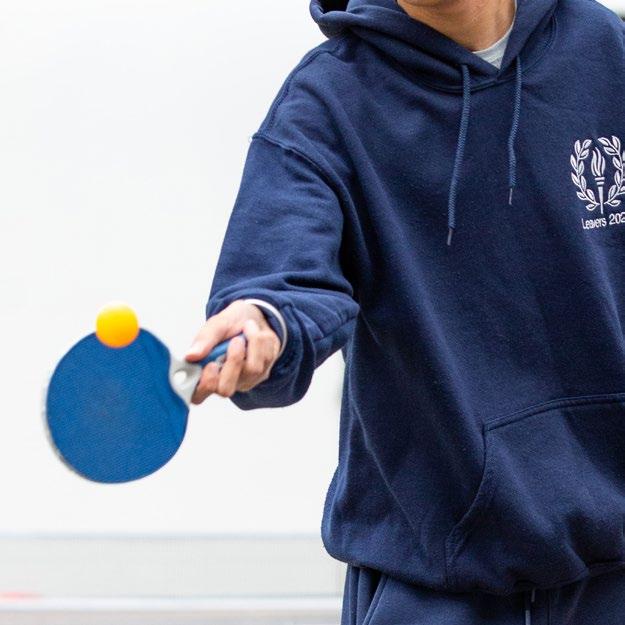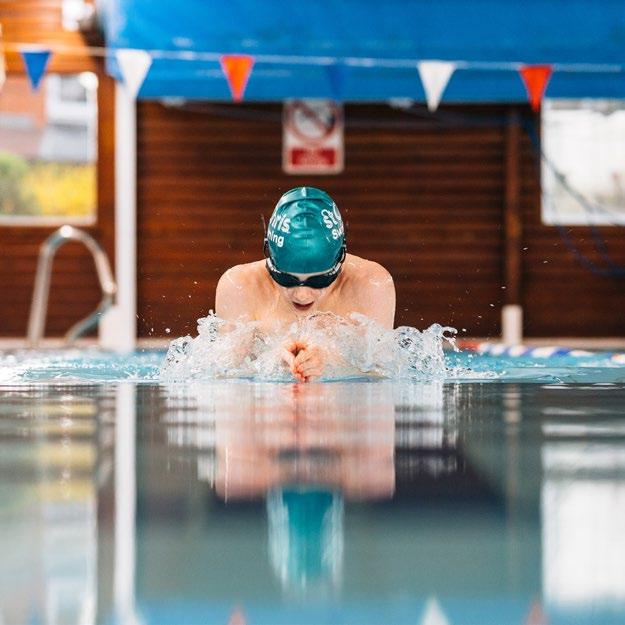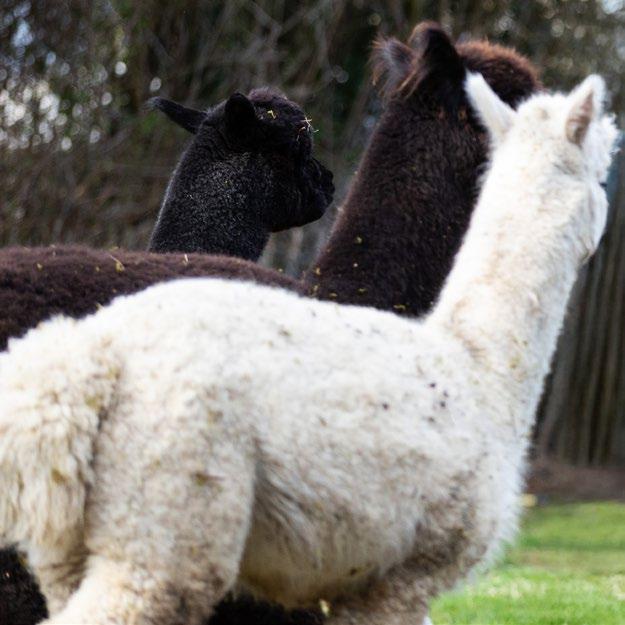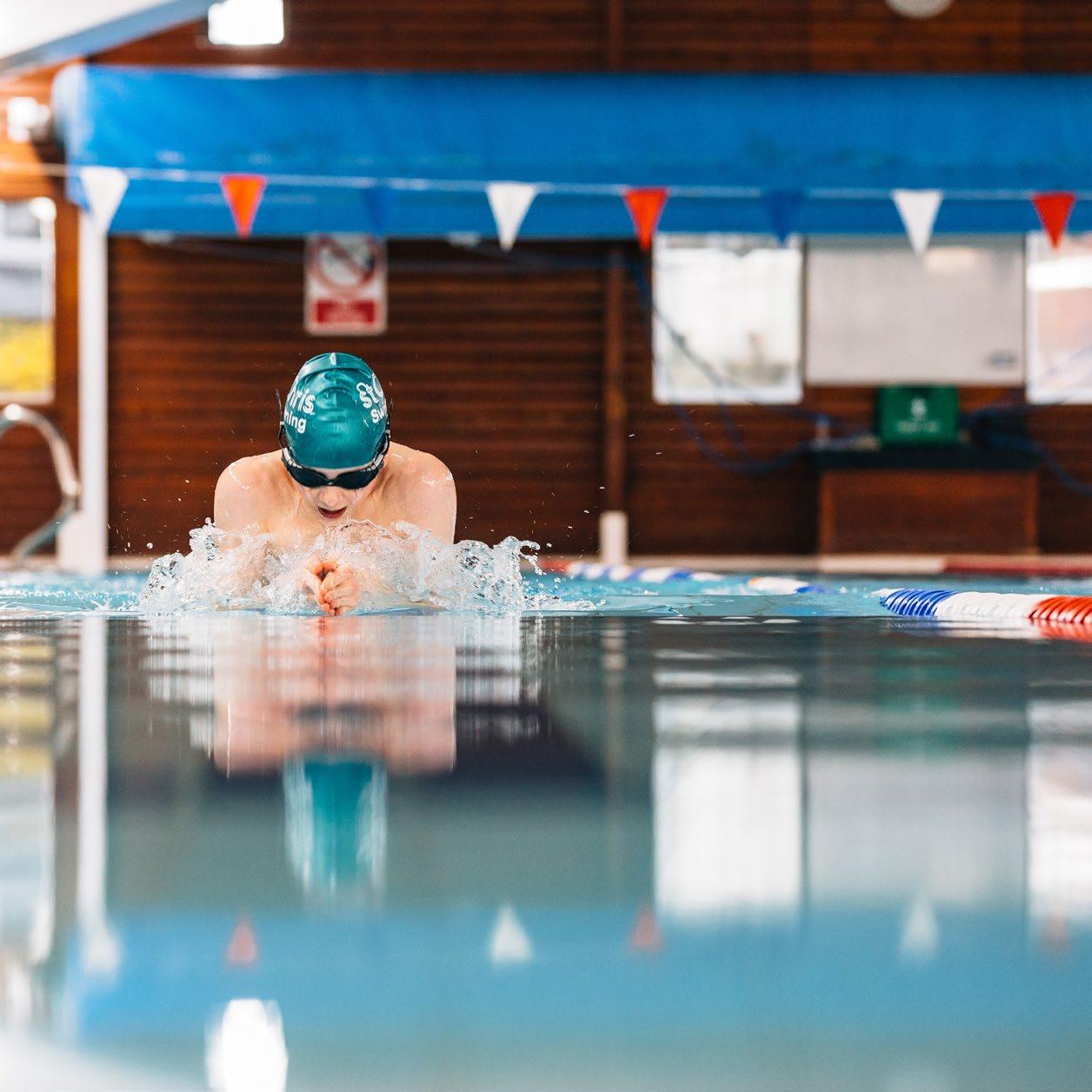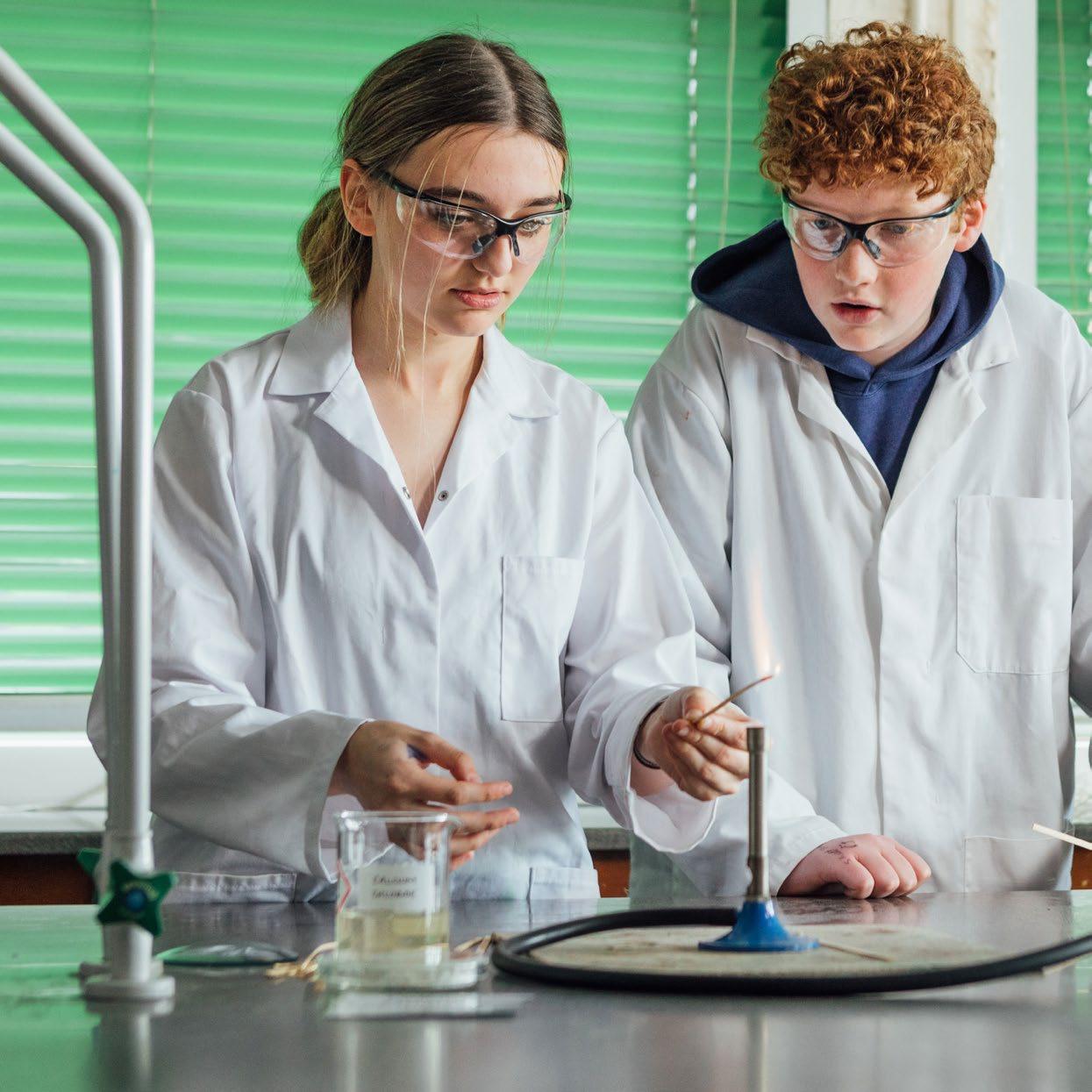

GCSE Curriculum
– The Basics
Years 10 and 11 (IV and V Group) are an exciting step for pupils to hone in on their interests and their preferred academic choices. St Chris pupils are challenged, inspired and supported to undertake GCSE courses. There is an increased academic demand but also a deepening of understanding, providing the basis for the step pupils will make from the end of Year 11 to the Sixth Form at St Chris.
St Chris provides advice and consultation for students and parents to help them make the appropriate choices. This booklet is the starting point for that discussion as it provides the essential information about the GCSE courses provided at St Chris.
CORE CURRICULUM
Pupils follow a curriculum which leads to between eight and ten GCSE awards. The core curriculum is compulsory for everyone and includes: English Language and English Literature Mathematics
Sciences - Biology, Chemistry and Physics (two or three GCSEs)
St Chris offers a truly personalised and flexible curriculum offer where individual needs are considered and catered for. As a result some students are able to adapt the core subjects that they do with some students only sitting English language and not English literature, and some sitting the single science awards.
SUBJECT OPTIONS
In addition to the core curriculum students also choose three subject options from a broad range of GCSE subject choices (and one BTEC Level 2 choice in place of one of your GCSE choices).
Pupils are strongly advised to opt for those subjects that they enjoy and are good at. Higher Education and career aspirations should also be considered. Wherever possible it is sensible to aim for a balanced programme of study. However, the School does not require a pupil to choose courses to include all the main curriculum areas (languages, humanities, creative subjects and technology). It is possible, therefore, to select a combination of subjects tailored to individual strengths and needs.
In discussion with the academic team, there is also the possibility for students to take an additional fourth option as an after school session. We offer GCSE Astronomy or a Level 2 Certificate (equivalent to a GCSE) in Further Maths as additional after school options.
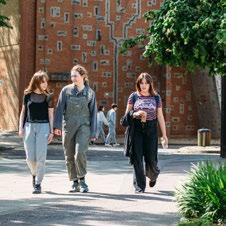
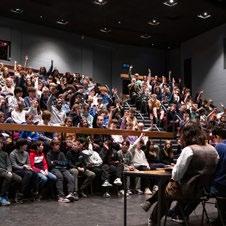
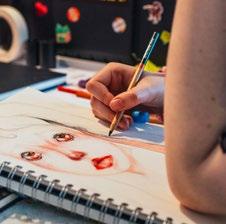
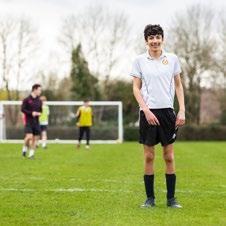
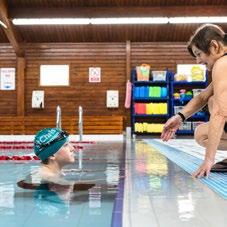
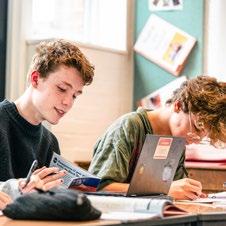
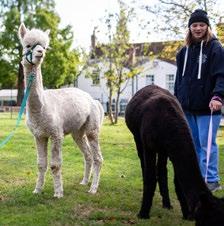

INDEPENDENT LEARNING AND LIFE SKILLS
Alongside GCSE qualifications, students in Year 10 (IV Group) also study qualifications aimed at developing wider skills and expertise. All students complete either a Higher Project Qualification or an IGCSE (International GCSE) in Global Perspectives. Both qualifications give students increased ownership of their learning as they plan, run and complete projects of their choosing.
In Year 11 (V Group) students develop wider life skills. A wide choice of qualifications such as first aid, mental health training, British Sign Language and sports leaders awards are offered and all students complete at least one.
All students also take part in weekly PSHE lessons (personal, social, health, and economic education) and weekly PE/Games lessons.
St Chris provides advice and consultation for pupils and parents to help them make appropriate choices. This booklet is the starting point for that discussion as it provides the essential information about the GCSE courses provided at St Chris.
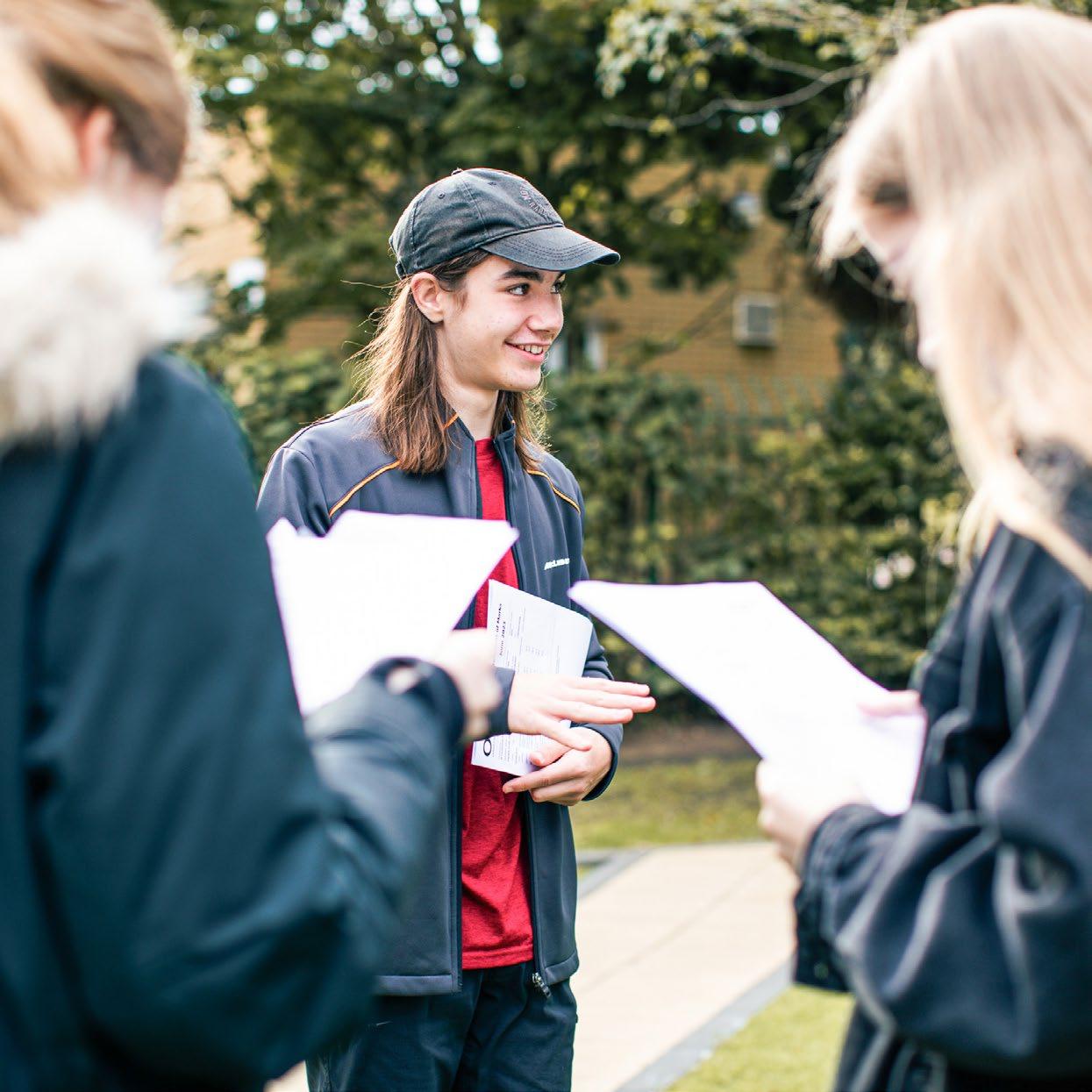
All pupils undertake the following courses:
English Language & English Literature
Examining Group AQA
Syllabus Titles English Language (8700)
English Literature (8702)
GCSE English lessons at St Chris are split into two separate courses: English Language and English Literature. Both are compulsory for all students.
ENGLISH LANGUAGE
AQA GCSE Language (Specification code: 8700):
Paper 1: Explorations in Creative Reading and Writing
Paper 2: Writers’ Viewpoints and Perspectives
Group IV – Power, Conflict and the Human Condition
This group develops critical interpretation skills through modern and 19th-century texts including An Inspector Calls, Animal Farm, and A Christmas Carol. They examine how writers use character and setting to explore moral and social themes. In the spring, students study both unseen and anthology poetry, focusing on language, form, and structure. The year concludes with Romeo and Juliet, where students deepen their understanding of tragedy, character motivation, and historical context.
Group V – Mastering Examination Skills
Focused on preparation for GCSE assessment, students refine their reading and writing skills across English Language and Literature. They practise comprehension, analysis, and extended writing using Language Papers 1 and 2, while revisiting key Literature texts to strengthen their interpretations. Speaking and Listening work develops their persuasive language and oracy. The year ends with a revision sequence that integrates all skills, ensuring students are confident and exam-ready.
AQA GCSE LITERATURE (Specification code: 8702):
Paper 1
Romeo and Juliet
A Christmas Carol
Paper 2
An Inspector Calls/ Animal Farm Power and Conflict Poetry
Unseen Poetry
Mathematics
Examining Group Edexcel (Pearson)
Syllabus Title Mathematics (1MA1)
GCSE Mathematics is assessed by examination only at the end of Year 11 (V Group). It is a tiered qualification. There are two tiers:
Foundation tier - grades 1 to 5 available
Higher tier grades - 4 to 9 available (grade 3 allowed)
Students whose level of achievement is below the minimum judged by Pearson to be of sufficient standard to be recorded on a certificate will receive an unclassified U result.
The assessment for each tier of entry consists of three externally-examined papers (Paper 1 – non-Calculator, Paper 2 and 3 – Calculators are allowed), each paper is 1hr 30 minutes long and is out of 80 marks each; all three must be from the same tier of entry.
The GCSE course comprises topics from the following main areas:
Number: prime numbers; fraction arithmetic; percentages and interest calculation; standard form; surds; consequences of estimating
Ratio: the fact that ratio is a relationship and can help solve many everyday problems
Algebra: one of the key languages in maths and how to model situations in general and solve for particular known facts
Graphs: how to present information visually and use graphs to help solve problems
Geometry: to use properties of shape to solve problems; Pythagoras and Trigonometry
Probability & statistics: outcomes of multiple events; 0 – 1 probability scale, Venn & tree diagrams; independent & dependent events; inference about populations from sampling; correlation etc
The GCSE has been designed to give students a solid understanding of concepts, the opportunity to achieve fluency in mathematical processes and gain confidence in applying these to problem-solving in a wide variety of contexts.
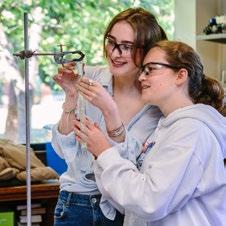
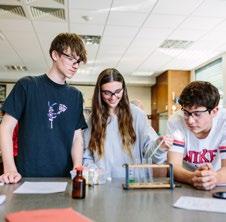
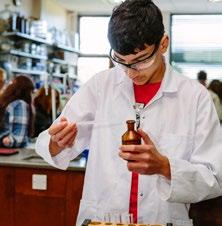
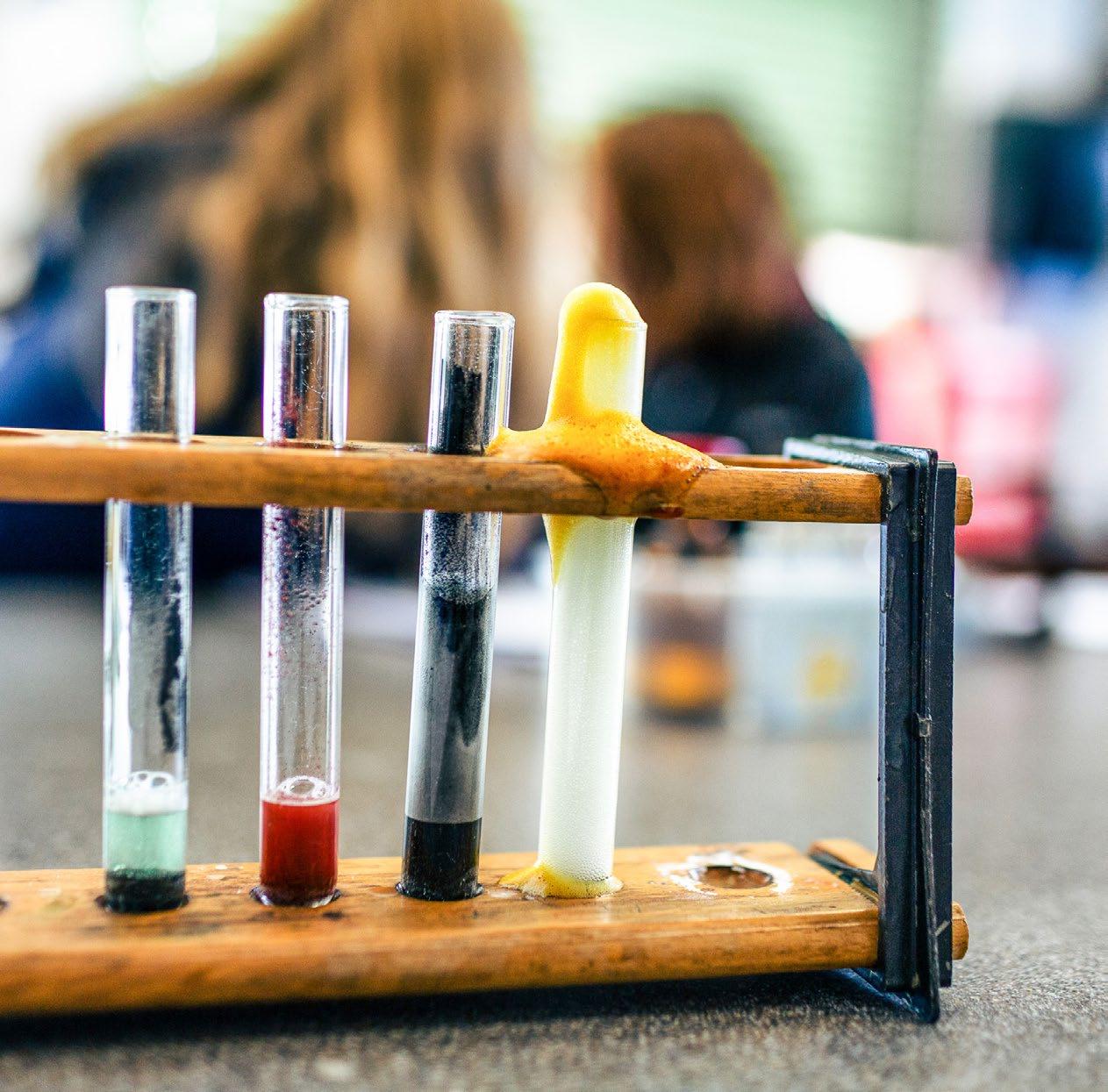
Combined Science (Trilogy), or Biology, Chemistry & Physics
Examining Group AQA
Syllabus Titles Combined Science: Trilogy (8464, Double Award); or Biology (8461) Chemistry (8462) Physics (8463)
Progress in lessons and test results in Year 9 (III Group), Year 10 (IV Group) and Year 11 (V Group), allow us to decide the best combination for each individual which can be used to achieve either two GCSEs in the double award or three GCSEs in the separate sciences.
The strongest science students will follow the three separate GCSE courses: Biology; Chemistry; Physics. Other students will work towards two GCSEs called Combined Science: Trilogy.
There is no coursework element in any of the specifications; however, questions in the written exams will draw on work students have experienced when carrying out practical activities, some of which are compulsory.
All pupils will take their GCSE written papers at the end of Year 11.
COMBINED SCIENCE: TRILOGY (DOUBLE AWARD)
Students will take the following written terminal papers:
Biology Biology 1, Biology 2
Chemistry
Physics
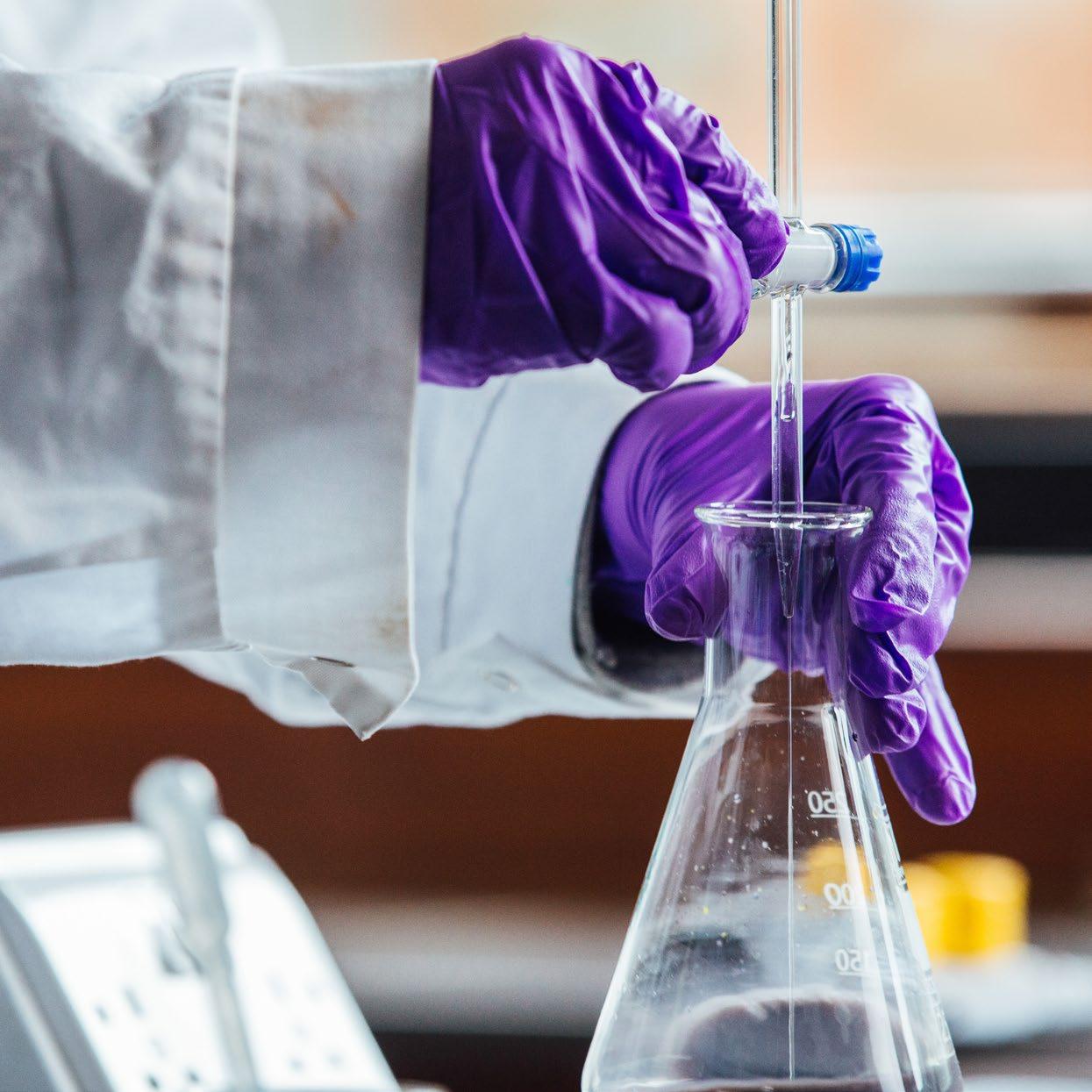
Chemistry 1, Chemistry 2
Physics 1, Physics 2
Each paper is 1 hour 15 minutes, 70 marks and worth 16.7%.
Questions are a mix of multiple choice, structured, closed short answer, and open response.
The qualification will be graded on a 17-point scale: 9-9 (highest)
9-8
9-7 etc. all the way down to 1–1
All the exams are in May/June at the end of Year 11.
BIOLOGY, CHEMISTRY, PHYSICS
The separate science GCSEs in Biology, Chemistry and Physics have an assessment structure as follows:
Students will take the following written terminal papers:
Biology Biology 1, Biology 2
Chemistry Chemistry 1, Chemistry 2
Physics
Physics 1, Physics 2
Each paper is 1 hour 45 minutes, 100 marks and worth 50%.
Questions are a mix of multiple choice, structured, closed short answer, and open response.
All pupils will take their GCSE written papers at the end of Year 11.
Full details of science courses from AQA can be found here: http://www.aqa.org.uk/subjects/science/gcse
PSHE
PSHE (Personal, Social, Health and Economic Education)
IV Group have two lessons a fortnight and V Group have one lesson a fortnight covering three key themes:
Health and wellbeing
Relationships and Careers and Finance.
The curriculum covers current issues that young people face today, as well as life skills that help prepare them for the future. This includes empowering our young people to make safe and informed choices, whether that is about diet and exercise, relationships or how to budget their finances.
Within PSHE we also cover careers, work experience and various pathways for future study.
PSHE provides essential learning to help our students to live healthy, happy and fulfilled lives.
Providing excellent opportunities to develop their communication skills and group work.
Many of the topics encourage students to reflect on the experiences of others, thus enriching their empathy and understanding.
Learning is complemented with visiting speakers who provide specialist insight on a variety of topics such as substance abuse or financial literacy.
We also ensure that students are signposted in how to seek support with every topic area, ensuring that they are given vital knowledge about how to reach out when they need to.
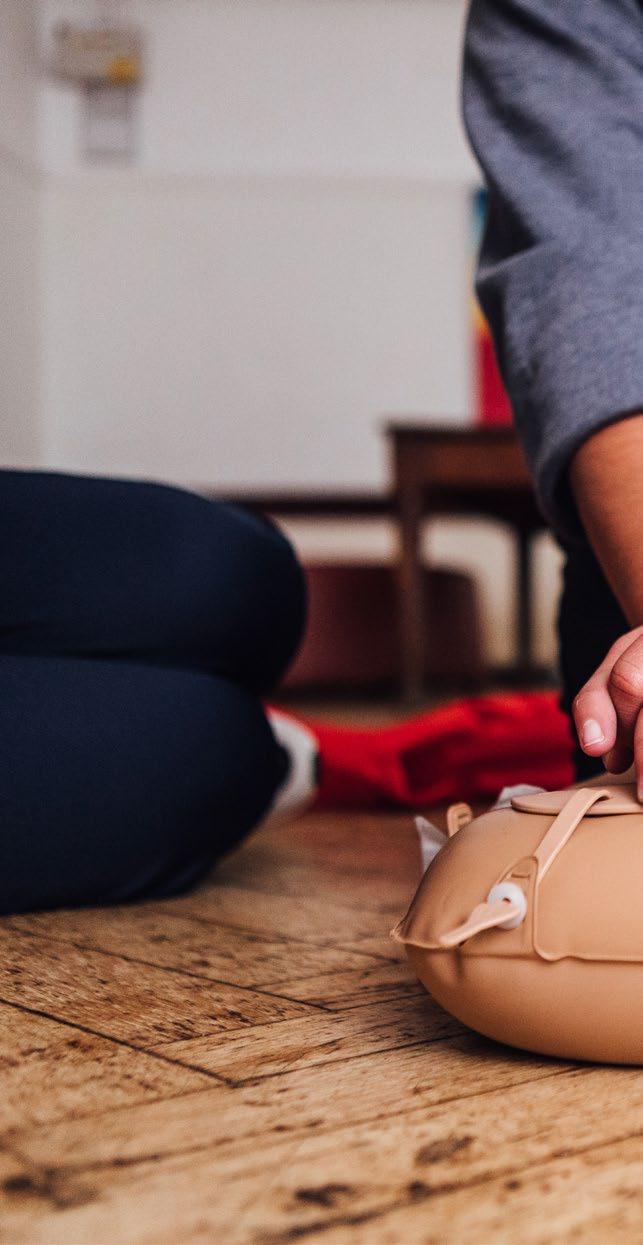
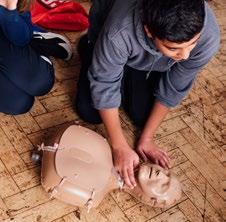
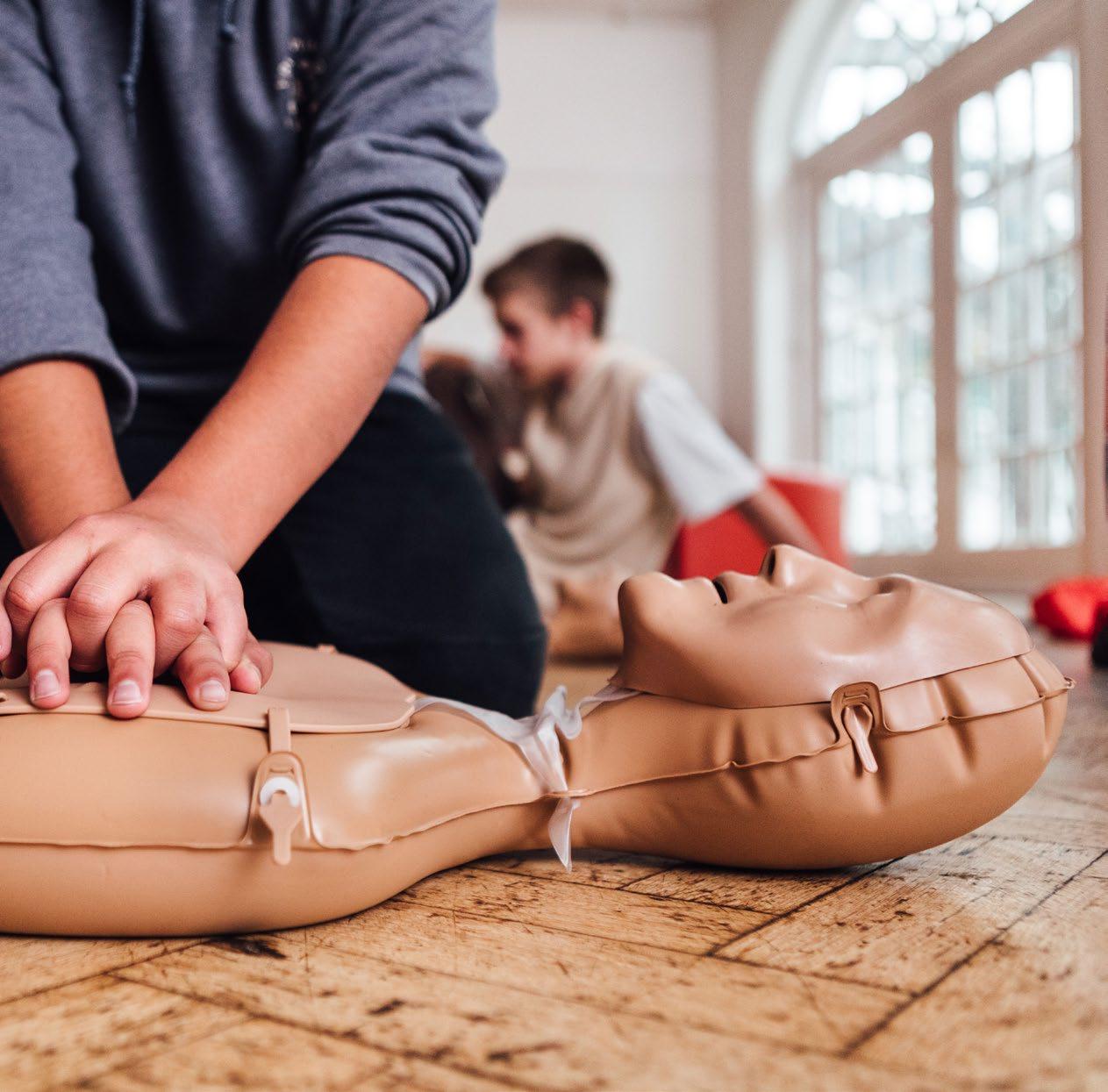
All students in Year 10 (IV Group) study qualifications aimed at developing wider skills and expertise either through an IGCSE in Global Perspectives or a Higher Project Qualification. Both qualifications give students increased ownership of their learning as they plan, run and complete projects of their choosing.
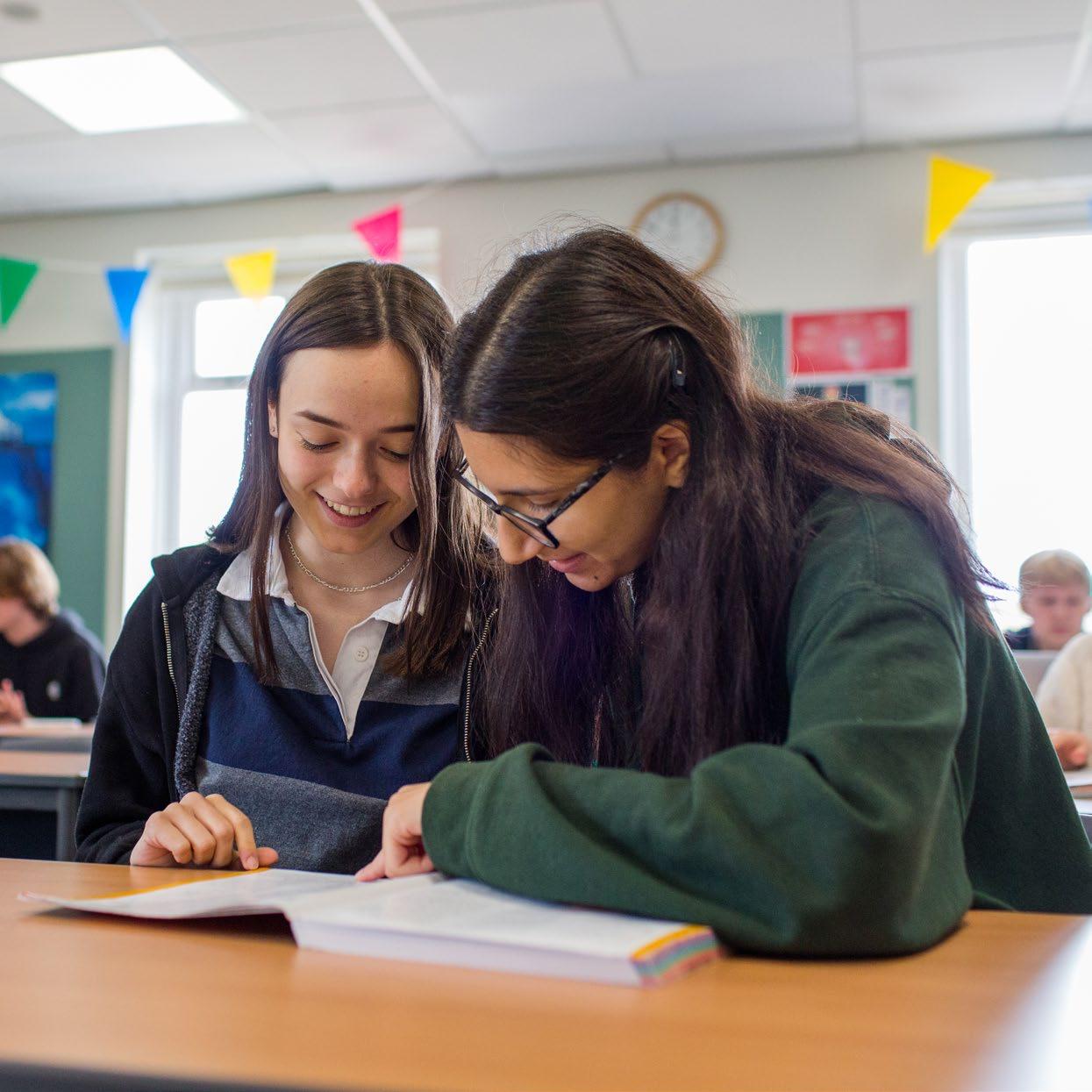
Global Perspectives (IGCSE)
Examining Group Cambridge International Education
Syllabus Title Global Perspectives 0457 IGCSE
COURSE OUTLINE
Cambridge IGCSE Global Perspectives gives learners the opportunity to think about significant global issues and to consider these from different perspectives. It develops a set of transferable skills in research, analysis, evaluation, communication, collaboration and reflection. It encourages learners to construct arguments, present views, work collaboratively, research, and reason and reflect on their place in a connected world. These transferable skills will support student learning across all of their studies.
AIMS
The aims are to enable students to:
• become independent and confident about taking their place in a changing, information-rich and connected world develop an analytical and evaluative grasp of global issues and their causes and consequences, leading to the suggestion of possible evidence-based courses of action consider the concept of sustainability when analysing issues and proposing courses of action engage with and reflect on issues, both independently and in collaboration with others and from a variety of different perspectives work independently as well as part of a team, showing responsibility for much of their own learning including using diverse and varied sources to support reasoning consider important issues from a variety of perspectives and reflect on the links between these
critically assess information available to them and support judgements with lines of reasoning in order to communicate to others effectively and appropriately
ASSESSMENT
Component 1 – Written Exam Written paper, 1 hour 25 minutes, 70 marks (35%). This component is an externally set assessment, marked by Cambridge International.
Component 2 – Individual Report, 60 marks (30%)
This component is an internally set assessment, externally marked by Cambridge International. Candidates write an Individual Report on a topic from the topic list. The Individual Report must be based on one of the topics listed in the syllabus.
Component 3 – Team Project Team Project, 70 marks (35%)
This component is internally assessed and externally moderated by Cambridge International. Candidates work in teams of two to five members to design and carry out a collaborative project.
SKILLS
To support learners in facing these challenges, Cambridge IGCSE Global Perspectives develops a range of skills, including:
researching, analysing and evaluating information developing and justifying a line of reasoning reflecting on processes and on own learning communicating information and reasoning collaborating to achieve a common outcome. These skills are transferable and useful for future study. They will help learners become active citizens of the future. Learners are encouraged to explore ideas from others’ communities, countries and cultures. Through stimulating topics they will explore issues of global significance. They will learn to direct their own study and develop independent thought.
TOPICS
The topics enable students to develop skills, explore global issues and consider different perspectives on these issues. Students and their teachers must choose topics from the following list:
Arts in society; Change in culture and communities; Climate change, energy and resources; Conflict and peace; Development, trade and aid; Digital world; Education for all; Employment; Environment, pollution and conservation; Globalisation; Health and wellbeing; Law and criminality; Media and communication; Migration and urbanisation; Political power and action; Poverty and inequality; Social identity and inclusion; Sport and recreation; Technology, industry and innovation; Transport, travel and tourism; Values and beliefs; Water, food and agriculture.
Higher Project Qualification (HPQ)
Examining Group Edexcel (Pearson)
Syllabus Title Higher Project Qualification (HPQ) Level 2
COURSE OUTLINE
The Pearson Edexcel Level 2 Higher Project has been designed for learners to study a topic area which extends or expands their learning in an appropriate area of study as a standalone qualification. Learners select a project which may be completed over one year. Learners will be assessed on their ability to plan, manage, complete and review their project.
THESE QUALIFICATIONS SHOULD:
be of sufficient breadth and depth to allow learners to address the broad aims listed above be based on a topic chosen by the learner and verified as appropriate by the centre be supported by a taught element, mentoring and workshops require 60 guided learning hours.
HOW IS IT ASSESSED?
These qualifications are assessed by the tutor-assessor. There are four assessment objectives for the Pearson Edexcel Level 2 Higher Project. These detail the knowledge, skills and understanding that the learner is required to demonstrate:
CHOOSING AN APPROPRIATE PROJECT:
select, either individually or as part of a group, an appropriate topic
identify a question or brief which specifies an intended project outcome
produce a plan for how they will deliver their intended outcome
conduct research into the project brief, using appropriate techniques
develop the intended outcome using selected tools and techniques safely
demonstrate the capacity to see a project through to completion
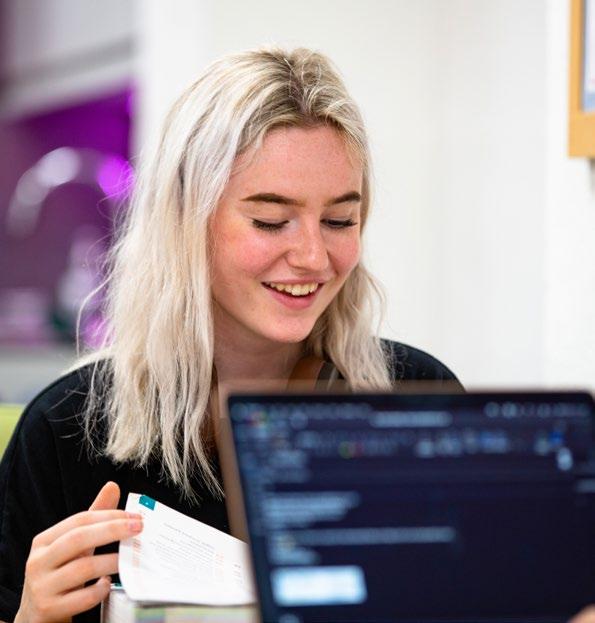
Research, select, organise and use information, and select and use a range of resources. Interpret data and apply findings.
AO3 Develop and realise Select and use a range of skills, including, where appropriate, new technologies and problem solving to achieve planned outcomes
AO4Review
Evaluate project outcomes and own learning and performance. Use communication skills to present evidence project outcomes and conclusions in an appropriate format.
share the outcome of the project, including a review of their own learning and performance with others, using appropriate communication methods
LEARNERS WILL:
develop as inquisitive and independent learners be inspired and enthused by new areas or methods of study
support the experiential learning process and find further opportunities to plan and review their learning use their learning experiences to support their personal aspirations for further study and career development where appropriate, develop as e-confident learners and apply relevant technologies in their studies.
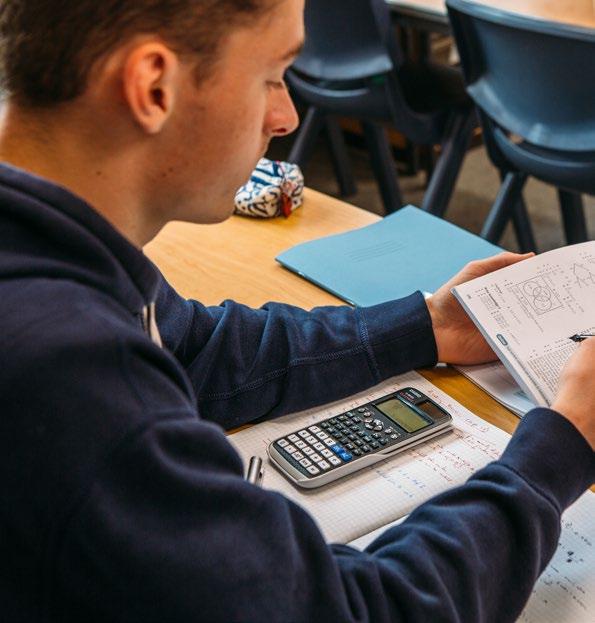
*Please note these qualifications are offered as after school sessions which can be taken as an additional fourth option in addition to the three subject options that students choose as part of the main school day in discussion with the academic team.
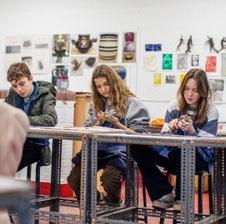

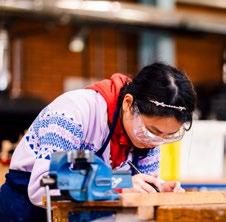
Art & Design
Examining Group EDUQAS
Syllabus Title GCSE Art and Design
ASSESSMENT
Students are provided with a wide range of stimulating creative opportunities to explore their interest in Art and Design in ways that are personally relevant and developmental in nature.
Students can choose from any one of the following titles which are separate GCSE qualifications:
Art, Craft and Design
Fine Art
Graphic Communication
Photography
Textile Design
There is the potential for some students, who are clear that they want to follow a creative pathway, to undertake more than one Art & Design GCSE qualification. We can discuss this option on an individual basis.
PORTFOLIO
(60% of qualification)
This component is designed to enable students to effectively develop an introductory foundation of core skills and encourage engagement with exciting creative experiences that build fundamental learning, knowledge, contextualisation skills and critical thinking.
At St Chris the portfolio usually consists of a foundation skills-based module, a whole class gallery visit, a major practical project and a mock exam project. Students are also encouraged to participate in creative ventures at school such as clubs and options in the Recycled Fashion Show, jewellery, darkroom photography, pottery and set design. These could all support a strong portfolio. In addition, there are weekly after school supervised sessions in the Art Room run to support students with practical work.
EXTERNALLY SET ASSIGNMENT
(40% of qualification)
This component represents the culmination of students’ GCSE study and provides both focus and challenge. Students are required to develop a personal response to one of a varied range of stimuli within specified time constraints.
In an ever more concerning world, the values of this school prepare children for the future.
Students focus on acquiring valuable skills which include experimentation, risk-taking, drawing, the application of the formal elements and the ability to analyse and synthesise information and ideas, alongside developing and refining techniques.
This element of the course culminates in a practical project/ portfolio, in which students develop, in consultation with their teacher, a body of work based on a theme, concept or specific design brief that is of personal significance and links to the contexts of contemporary and/or past artists, designers or craftspeople.
The Externally Set Assignment materials consist of a series of assignments based on themes, visual stimuli and written briefs set by the exam board. Students are required to select one of the set assignments and to develop a personal response. Students will develop their response over a preparatory period, which at St Chris is through the spring term of Year 11. Responses must take the form of critical, practical and contextual preparatory work and/or supporting studies, which will inform the resolution of these ideas in a sustained focus study. Following the preparatory study period, students will work in a two day exam (at the end of the spring term) for a period of 10 hours sustained focus study to realise their response. At the conclusion of their preparatory study and exam, students will be required to select, evaluate and present their submissions for assessment.
Art supplies costs: General art supplies are included within the School Fees however, due to the broad range of materials and techniques available to our students, additional charges can sometimes be made where individual specialist materials are required for practical work.
Art & Design: 3D Design
Taught by specialist 3D Design staff in our extensive St Chris workshop, with advanced facilities for wood/ metal/plastics/CAD/CAM work.
Examining Group AQA
Syllabus Title GCSE Art & Design: Three Dimensional Design (8205)
ASSESSMENT
PORTFOLIO
(60% of qualification)
• Undertaken from the start of Year 10, through to the end of the autumn term in Year 11.
• Students build up a broad portfolio of creative three dimensional work, based around two substantial coursework projects: one wide ranging and sculptural; the other more product based and technical in nature with a focus on furniture and lighting.
• Students have access to an extremely well equipped and resourced industry standard workshop, and will be using advanced techniques such as hot metalwork, MIG welding, laminating, forging, casting, laser cutting, carving and fabrication.
• We have a strong emphasis on experimenting and exploring creative ideas directly through making. The great majority of lessons are workshop based, with homework then being to record and develop ideas in the student’s sketchbook.
• Students are taught how to keep a sketchbook that tells the “journey” of their project, including: the focus and aims of their work; personal research into inspirational designers and artists; the development and evaluation of their own creative ideas, trips and visits along with drawing, photography, CAD and annotation used to communicate these.
• Students should be interested in 3D Design, spend time looking at design on-line, and be excited to visit galleries, exhibitions and design shops in their own time if they wish to access the highest grades.
EXTERNALLY SET ASSIGNMENT
(40% of qualification)
Preparatory period (one term) + 10 hours supervised exam time in the workshop.
Students respond creatively to a chosen starting point, from a list of contexts set by the exam board in January of Year 11.
Preparation for this takes place during the spring term of Year 11, involving research, model making, developing ideas and making components.
There is then a supervised Practical Making Exam in the 3D Design workshop, usually undertaken for two days (equalling 10 hours) at the very start of the summer term. There is no written exam
Pupils should consider 3D Design if they enjoy:
Making things and working creatively with their hands;
Problem solving, and working out how to make things;
Working more independently and managing a project over a long period of time (being self-motivated and organised with project work and sketchbooks is a core skill);
Looking at the work of artists, architects, sculptors, product designers, jewellers and researching other sources;
Coming up with artistic creative ideas of their own;
Keeping creative sketchbooks and enjoying exploring thoughts and ideas on paper;
Freehand sketching and Designing 2D and 3D shapes on the computer through CAD;
Using and knowing about a range of materials, tools and machines.
The differences between Year 9 3D Design work and GCSE 3D Design are a greater focus on:
Weekly sketchbook work - researching your own sources, including the work of artists, architects and product designers as starting points for your own work;
Updating sketchbooks every week at home to explore, record and communicate your developing ideas;
Creative experimentation in the workshop using many more tools, processes and materials;
Updating sketchbooks every week at home to explore, record and communicate your developing ideas;
Smaller classes so more individual help in the workshop, as well as two lessons per week rather than one
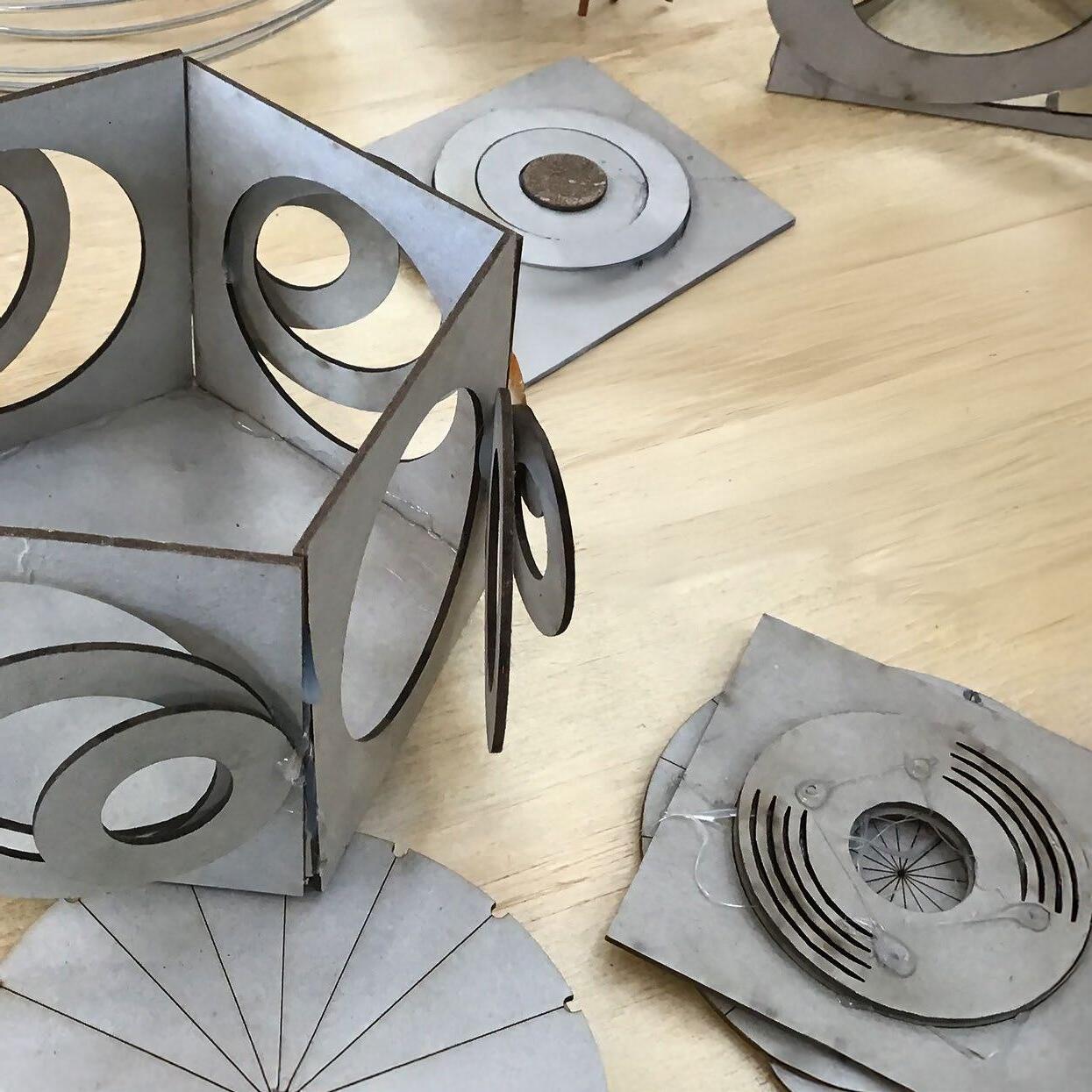
The 3D Design Department offers after school “Shed” sessions one evening per week to exam candidates, where students in Year 10 to Year 13 work side by side. Coming to regular after school sessions again helps students to access higher grades.’
Astronomy
Examining Group Pearson Edexcel
Syllabus Title GCSE Astronomy (1AS0)
GCSE Astronomy runs as an additional GCSE as an after school session. GCSE Astronomy can be taken as a fourth GCSE option in addition to the three subject options that students choose as part of the main school day. Students should note that GCSE Astronomy requires students to attend lessons after school once a week in the summer months and in the evening once a week during the winter months. It also requires a large amount of self-directed study.

WHY CHOOSE GCSE ASTRONOMY?
Most people are fascinated by the night sky and are interested in stories about our continuing exploration of our Solar System and Universe. This course has been developed to build on that interest and to give an introduction to the subject of astronomy.
The course enables students to understand our position in the Universe, the movements of planets and stars, the cycles in the night and daytime sky, and the way in which we use technology to observe and interact with space.
Students will follow an incredible story of how scientists, from ancient civilisations to the modern day, have used their imagination and carefully recorded visual measurement to explore the Universe in which we live.
AIMS AND OBJECTIVES
The aims and objectives of GCSE Astronomy are to enable students to:
• understand the structures of the Earth, Moon and Sun; and how their interactions produce many of the astronomical cycles and phenomena of our natural world
• understand the Earth’s place within the Solar System and the universe; and the forces, which have shaped both our own, and other planetary systems
• understand the forces governing the life cycles of stars; and demonstrate a knowledge of how stars appear in the night sky
• understand how astronomers discovered the Earth’s position within our galaxy and the Universe; and understand current theories for the evolution of the Universe
• understand the challenges inherent in making observations in astronomy; and the ways in which technology has aimed to overcome them
• apply observational, enquiry and problem-solving skills, through the use of information from aided and unaided astronomical observations; and use these skills to evaluate observations and methodologies
• develop an informed interest in current astronomical investigations, discoveries and space exploration
acquire knowledge and understanding of astronomy theory and practice, and the skills needed to investigate a wide range of astronomical contexts understand that the study and practice of astronomy are interdependent and iterative activities, and appreciate the links between astronomy and other branches of science
develop an awareness that the study and practice of astronomy are subject to limitations by e.g. economic, technical, ethical and cultural influences progress to further and higher education courses in the fields of astronomy or physics.
HOW IS IT ASSESSED?
The GCSE in Astronomy consists of two externally examined papers. Students are also required to complete at least one unaided and one aided observation from a list given in the specification.
Paper 1: Naked-eye Astronomy (50% of the qualification)
Content overview
Topic 1 – Planet Earth
Topic 2 – The lunar disc
Topic 3 – The Earth-Moon-Sun system
Topic 4 – Time and the Earth-Moon-Sun cycles
Topic 5 – Solar System observation
Topic 6 – Celestial observation
Topic 7 – Early models of the Solar System
Topic 8 – Planetary motion and gravity
Paper 2: Telescopic Astronomy (50% of the qualification)
Topic 9 – Exploring the Moon
Topic 10 – Solar astronomy
Topic 11 – Exploring the Solar System
Topic 12 – Formation of planetary systems
Topic 13 – Exploring starlight
Topic 14 – Stellar evolution
Topic 15 – Our place in the Galaxy
Topic 16 – Cosmology
Business
Examining Group Edexcel (Pearson)
Syllabus Title GCSE Business
COURSE OUTLINE
The Pearson Edexcel GCSE (9–1) Business course is designed to inspire and engage students by exploring the dynamic world of business. Through two key themes, Theme 1: Investigating Small Business and Theme 2: Building a Business. Students will develop essential knowledge of business concepts, terminology, and decision-making processes.
Theme 1 - focuses on starting and running small businesses, covering entrepreneurship, market research, financial planning, and external influences.
Theme 2 - examines business growth, marketing, operations, finance, and human resources, with an emphasis on national and global contexts.
Students will gain critical thinking, problem-solving, and quantitative skills, preparing them for further education, career pathways, or entrepreneurship.
The course fosters commercial awareness, creativity, and the ability to make informed decisions, equipping students with transferable skills for success in the modern business environment.
ASSESSMENT:
Written examination consisting of two papers
PAPER 1: Investigating small business
Questions relate to the content that appears in Theme 1 and students may draw on knowledge and understanding developed through Theme 2.
The paper is divided into three sections:
Section A: 35 marks
Section B: 30 marks
Section C: 25 marks
PAPER 2: Building a business
Questions relate to the content in Theme 2 and students may draw on underpinning knowledge and understanding developed through Theme 1.
The paper is divided into three sections.
Section A: 35 marks
Section B: 30 marks
Section C: 25 marks
Both papers are out of 90 and all questions must be answered. Each paper consists of calculations, multiple–choice, short–answer and extended–writing questions. They will include questions that target mathematics at a minimum of Key Stage 3 level.
Questions in Sections B and C will be based on business contexts given in a Source Booklet.
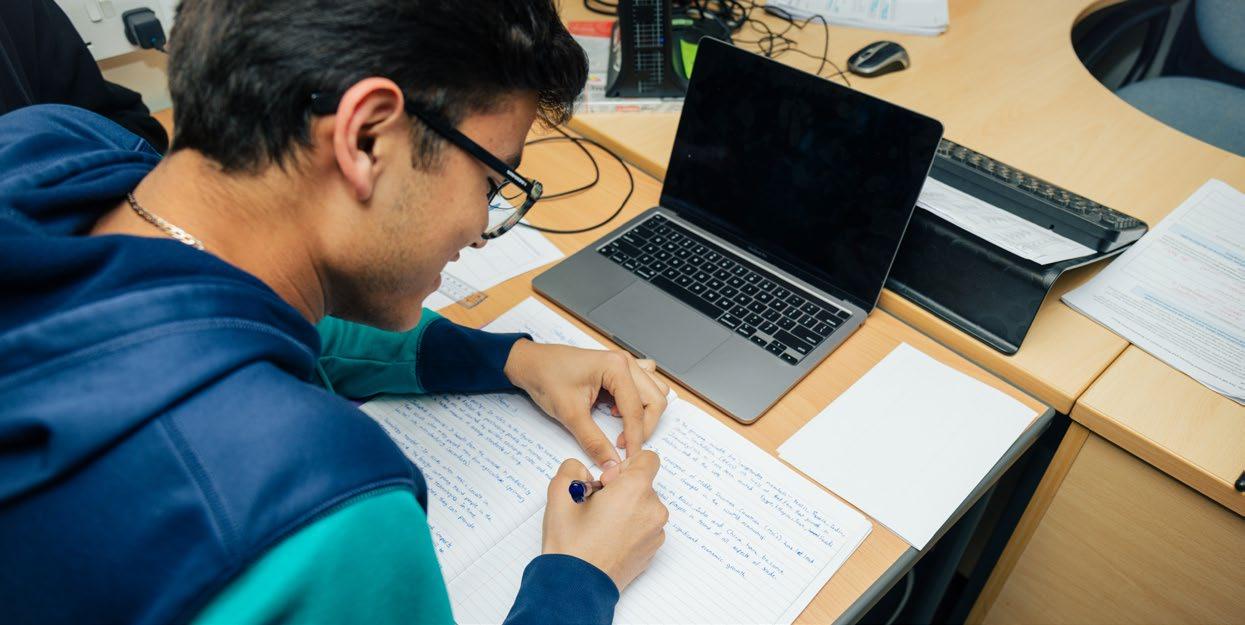
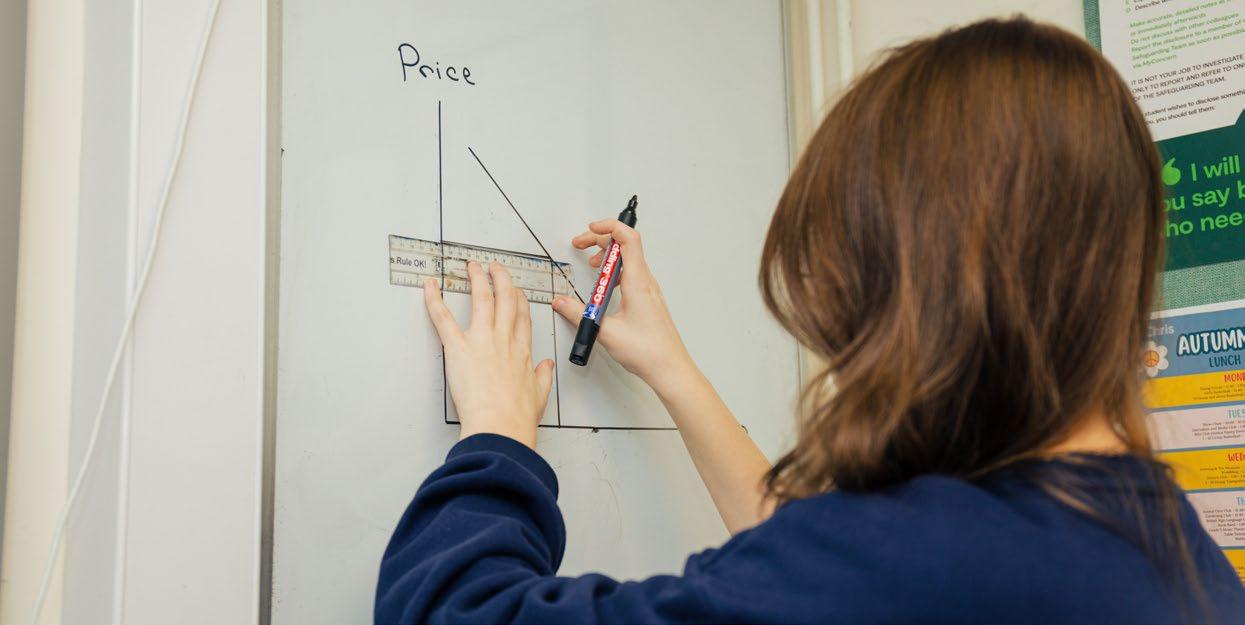

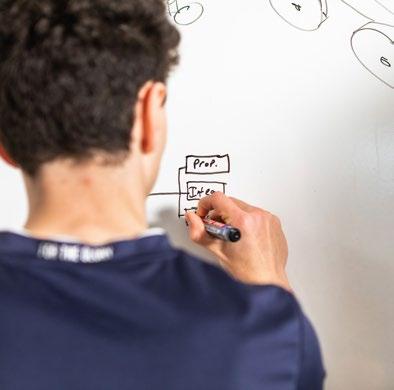
Computer Science
Examining Group OCR
Syllabus Title GCSE Computer Science (J276)
WHY STUDY COMPUTER SCIENCE?
Computer Science is at the heart of the modern world. From the apps on your phone to the technology powering global industries, computing underpins how we live and work.
Studying Computer Science at GCSE gives you an insight into how technology works, develops your problem-solving skills, and allows you to become a creator of technology, not just a user.
WHAT SKILLS WILL YOU NEED FOR GCSE COMPUTER SCIENCE?
• An interest in technology and how things work
• Logical thinking and the ability to solve problems step by step
• Persistence and resilience when faced with challenges
• Confidence in Mathematics - especially with numbers, logic, and patterns
WHAT YOU WILL BE TAUGHT
You will learn how computers process information and how data is stored and transmitted. Programming is at the centre of the course, with Python as the main language. Topics include:
• Programming techniques and problem-solving
• Algorithms and computational thinking
• Data representation (binary, images, sound, compression)
• Hardware, software, and networks
• Cybersecurity and ethical issues in computing
WHAT YOU CAN DO WITH THE QUALIFICATION
GCSE Computer Science is an excellent foundation for A Level Computer Science and other technical qualifications. It is also highly valued by employers and universities because it shows you can think logically, solve problems, and work creatively with technology. Careers in engineering, game design, data science, AI, cybersecurity, and app development all start here.
Drama
Examining Group AQA
Syllabus Title GCSE Drama (8261)
THE COURSE AIMS TO DEVELOP:
• Understanding drama
• Devising drama
• Texts in practice
COMPONENT 1: UNDERSTANDING DRAMA
• Knowledge and understanding of drama and theatre
• Study of one set play from a choice of six
• Analysis and evaluation of the work of live theatre makers
HOW IS IT ASSESSED?
Written exam: 1 hour 45 minutes; Open book; 40%. Multiple choice (4 marks); four questions on a given extract from the set play chosen (46 marks); one two part question (from a choice) on the work of theatre makers in a single live theatre production (30 marks).
COMPONENT 2: DEVISING DRAMA (PRACTICAL)
• Process of creating devised drama
• Performance of devised drama (students may contribute as performer or designer)
• Analysis and evaluation of own work
HOW IS IT ASSESSED?
Devising log (60 marks);
Devised performance (20 marks); 40%.
This component is marked by teachers and moderated by AQA.
COMPONENT 3: TEXTS IN PRACTICE (PRACTICAL)
Performance of two extracts from one play (students may contribute as a performer or designer). Free choice of play but to contrast with the set play chosen for Component 1.
How is it assessed?
Performance of Extract 1 (25 marks) and Extract 2 (25 marks); 20% of GCSE. This component is marked by AQA.
THEATRE TRIPS
Students can expect to see at least one production a year with the School.
The care that my child has received, and frankly the love from the teachers, and the individual approach offered, flexibility and communications with parents, have all exceeded my expectations
Parents’ Survey

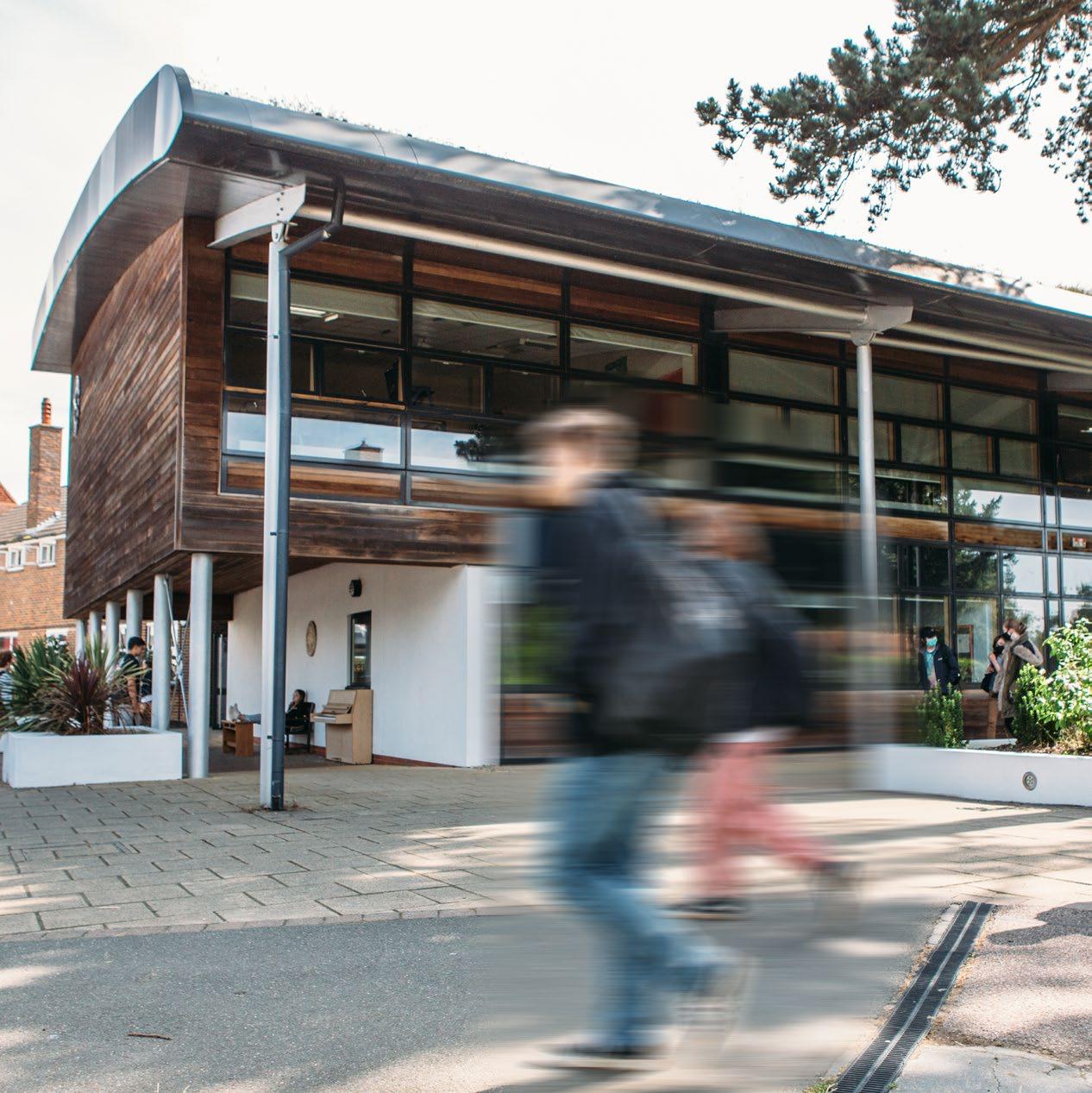
Film Studies
Examining Group EDUQAS
Syllabus Title GCSE Film Studies (4810)
WHAT IS FILM STUDIES?
Film is one of the main cultural innovations of the 20th century and a major art form of the last hundred years. GCSE Film Studies enables students to study a diverse range of films; learn to analyse the key elements of film form; explore the significance of film in a social, cultural and historical context; and put all of this into practice in the production of their own short film or screenplay.
HOW IS IT ASSESSED?
GCSE Film Studies is assessed through examination and practical coursework. Exams are worth 35% each and are as follows:
COMPONENT 1: KEY DEVELOPMENTS IN US FILM
Students are required to answer a range of questions which include: short form questions that assess their knowledge and understanding of genre, narrative and of key developments in film and film technology, and longer essay style questions which require them to analyse and compare the films they will have studied in class.
COMPONENT 2: GLOBAL FILM: NARRATIVE, REPRESENTATION AND FILM STYLE
Students are required to answer a range of questions, both short form questions that assess their knowledge and understanding of the key elements of film and their purpose, as well as longer questions that require them to show understanding of how context and aesthetics convey meaning in the films they have studied in class.
COMPONENT 3: Assessed internally and moderated externally, the production element of the course requires students to produce either a short film or a screenplay, responding to a brief set by the exam board. This must be accompanied by an evaluation of their work and creative process.
WHO SHOULD TAKE IT?
Pupils should consider GCSE Film Studies as an option if they already enjoy:
Film! An interest in a wide range of film is essential
Applying skills of analysis to a range of different texts
Being creative
Investigating the world around them
Film production and post-production
Food Preparation & Nutrition
Examining Group AQA
Syllabus Title GCSE Food Preparation & Nutrition (8585)
GCSE Food Preparation & Nutrition offers a focus on practical cooking skills and the opportunity to develop a thorough understanding of nutrition, the origin of foods and a working knowledge of the characteristics of ingredients.
Exciting and contemporary – It’s designed to motivate students to develop the high level of knowledge, understanding and skills to cook and apply the principles of food science, nutrition and healthy eating.
Keeps the subject meaningful – Students learn about improving lives through better knowledge of food, where it comes from and how it affects our bodies.
Inspiration from around the world – Explore a range of ingredients and processes from different culinary traditions (traditional British and international) to inspire new ideas or modify existing recipes.
THEORY CONTENT
(50% of qualification)
This content is covered throughout five components:
• Food
• Nutrition & Health
• Food Science
• Food Safety
• Food Choice
• Food Provenance
100 marks (1 hour 45mins written paper)
PRACTICAL CONTENT
(50% of qualification)
Food Preparation Task: Students’ understanding of the working characteristics, functional and chemical properties of ingredients.
Food Investigation Task: Students’ knowledge, skills and understanding in relation to the planning, preparation, cooking, presentation of food and application of nutrition related to the chosen task.
Students will prepare, cook and present a final menu of three dishes within a single period of no more than three hours, planning in advance how this will be achieved.
Teacher assessed and moderated by the exam board.
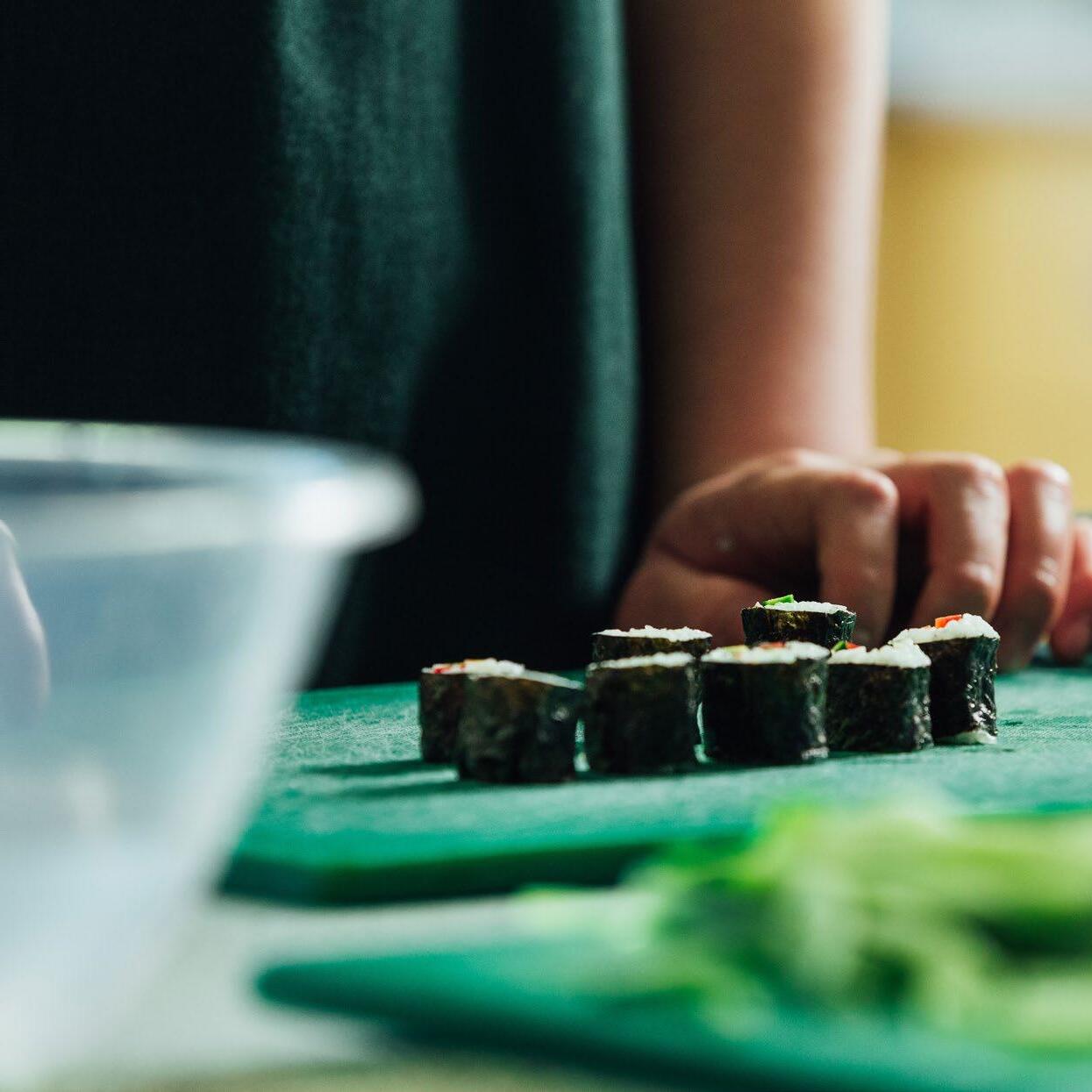
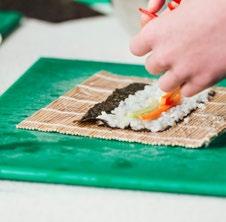
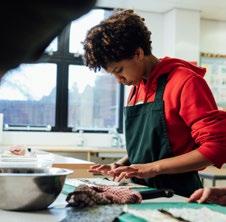

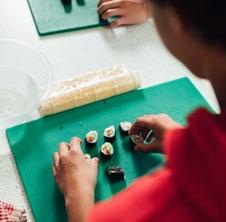
Our language teachers are supported by our dedicated native language Gap Students who join us from countries across the world.
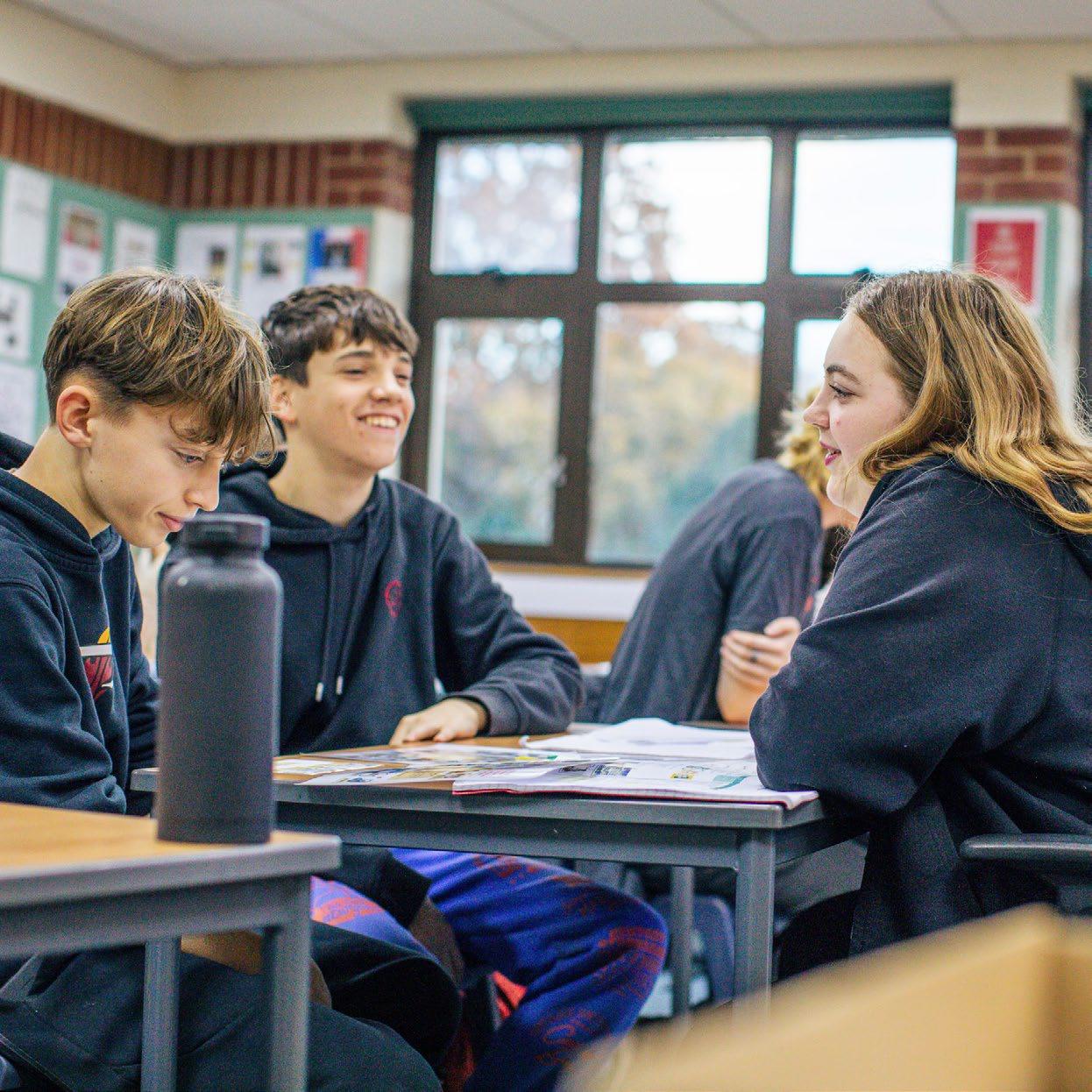
French
Examining Group AQA
Syllabus Title GCSE French (8658)
LISTENING PAPER
(25% of qualification)
Section A: Questions in English, to be answered in English or non-verbally
Section B: Questions in French, to be answered in French or non-verbally
READING PAPER
(25% of qualification)
Understanding and responding to different types of written language.
Section A: Questions in English, to be answered in English or non-verbally
Section B: Questions in French, to be answered in French or non-verbally
Section C: Translation from French into English
WRITING PAPER
(25% of qualification)
Structured writing task (90 words); Open-ended writing task (student responds to two compulsory detailed bullet points, 150 words in total); Translation from English into French (50 words).
SPEAKING TEST
(25% of qualification)
Externally set, internally conducted, externally assessed.
Communicating and interacting effectively in speech: Roleplay – 15 marks (2 minutes); Photo card – 15 marks (3 minutes); General conversation – 30 marks (5–7 minutes)
The emphasis at GCSE is on communication. Our objective is to enable students of all abilities to develop their French language skills to their full potential, equipping them with the knowledge to communicate in a variety of contexts with confidence.
The course covers three distinct themes that apply to all four question papers:
Theme 1: Identity and culture
Theme 2: Local, national, international and global areas of interest
Theme 3: Current and future study and employment
Students are expected to understand and provide information and opinions about these themes relating to their own experiences and those of other people, including people in countries/communities where French is spoken.
Further Mathematics
Examining Group AQA
Syllabus Title AQA Level 2 Certificate in Further Maths (8365)
Students who are expected to achieve grades 7, 8 and 9 in GCSE Mathematics are invited to take an additional qualification, AQA Level 2 Certificate in Further Mathematics.
This is an optional additional qualification and is particularly beneficial for those students who are keen to progress to study A Level Mathematics or Further Maths. The programme of study involves students attending an extra mathematics lesson after school once a week with additional independent study. Further Mathematics can be taken as an additional fourth option in addition to the three subject options that students choose as part of the main school day.
This qualification supports high achieving students by assessing their higher order mathematical skills, particularly in algebraic reasoning, in greater depth, thus preparing them fully to maximise their GCSE (Key Stage 4) curriculum.
The content assumes prior knowledge of the Key Stage 4 Programme of Study and covers the areas of algebra and geometry, which are crucial to further study in the subject, in greater depth and breadth. This qualification places an emphasis on higher order technical proficiency, rigorous argument and problem-solving skills. It also gives an introduction to calculus and matrices and develops further skills in trigonometry, functions and graphs.
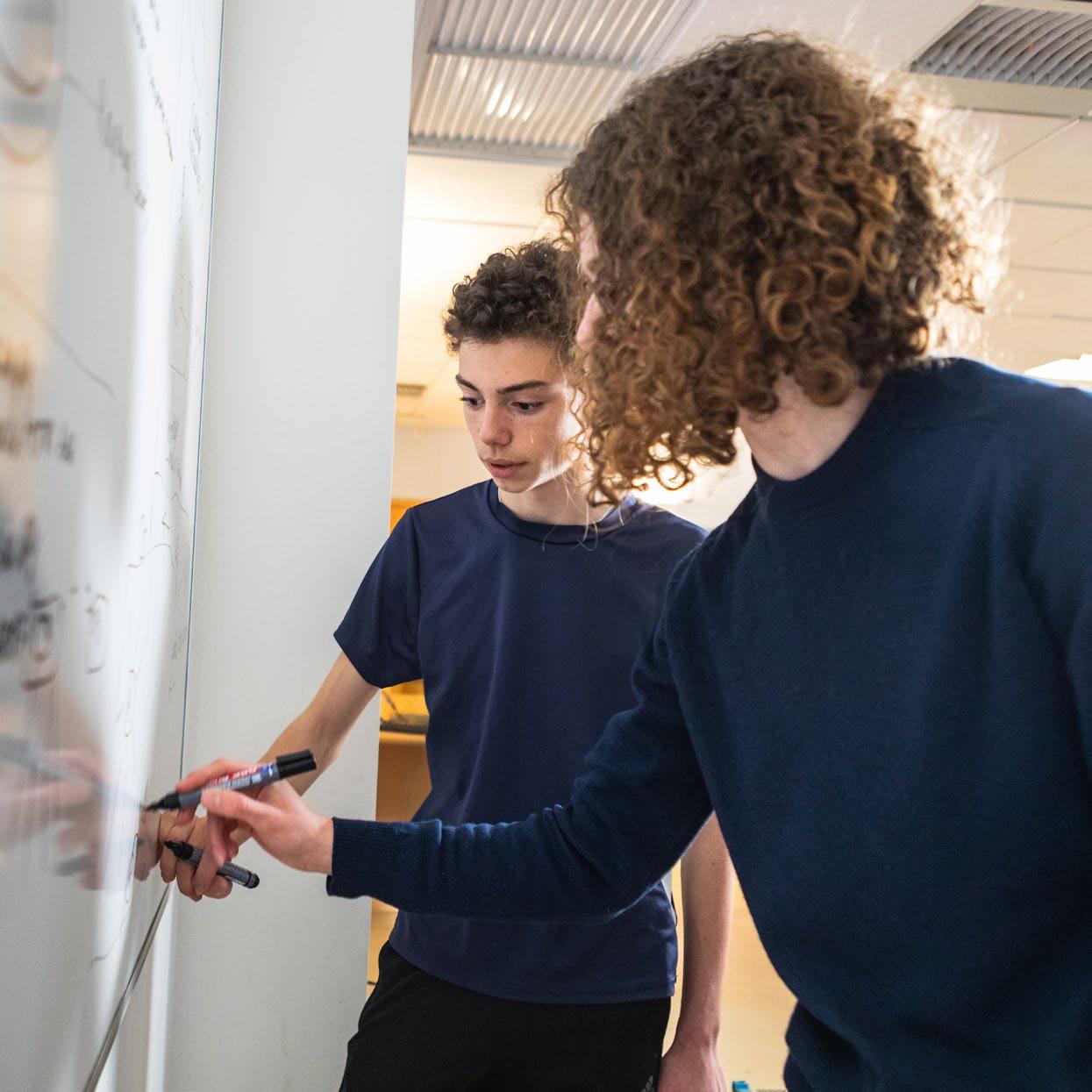
Geography
Examining Group Edexcel (Pearson)
Syllabus title GCSE Geography B (1GB0)
COURSE OUTLINE GCSE
Geography is both engaging and relevant. It is a qualification that enables students to explore the world, the issues it faces and their own place in it. The course has a clear and coherent structure focused on enquiry based learning that helps to develop transferable skills and prepares students to succeed in their chosen pathway. Fieldwork is an integral part of the course and enables students to develop their skills and knowledge of fieldwork techniques and practices.
ASSESSMENT
GLOBAL GEOGRAPHICAL ISSUES
Written examination - 1 hour 30 minutes
Students are examined on three topics – Hazardous Earth; Development Dynamics and Challenges of an Urbanising World. This is to enable students to develop and extend their knowledge of locations, places, environments and processes, and of different scales, including global, and of social, political and cultural contexts.
The exam includes multiple-choice, short open, open response and extended writing questions.
UK GEOGRAPHICAL ISSUES
Written examination - 1 hour 30 minutes
Students are examined on three topics in the context of the UK – The UK’s Evolving Physical Landscape; The UK’s Evolving Human Landscape and Geographical Investigations. This allows students to gain an understanding of the interactions between people and environments, the change in places and processes over space and time, and the interrelationship between geographical phenomena at different scales and in different contexts. Students carry out urban and coastal fieldwork and apply it to contemporary situations and issues.
The exam includes multiple-choice, short open, open response and extended writing questions.
PEOPLE AND ENVIRONMENT ISSUES - MAKING GEOGRAPHICAL DECISIONS
Written examination - 1 hour 30 minutes
This is a decision-making paper in which students are expected to apply geographical knowledge, understanding and skills appropriately and creatively to real-world contexts. The exam is based around a ‘geographical issue’ which student explore using the resource booklet provided.
The paper includes multiple-choice, short open, open response and extended writing questions. This exam covers content from the following four topics: People and the Biosphere; Forests under Threat; Consuming Energy Resources and Making a Geographical Decision.
All students are subject to SPAG marks (marks that can be lost or gained based on spelling, punctuation and grammar).
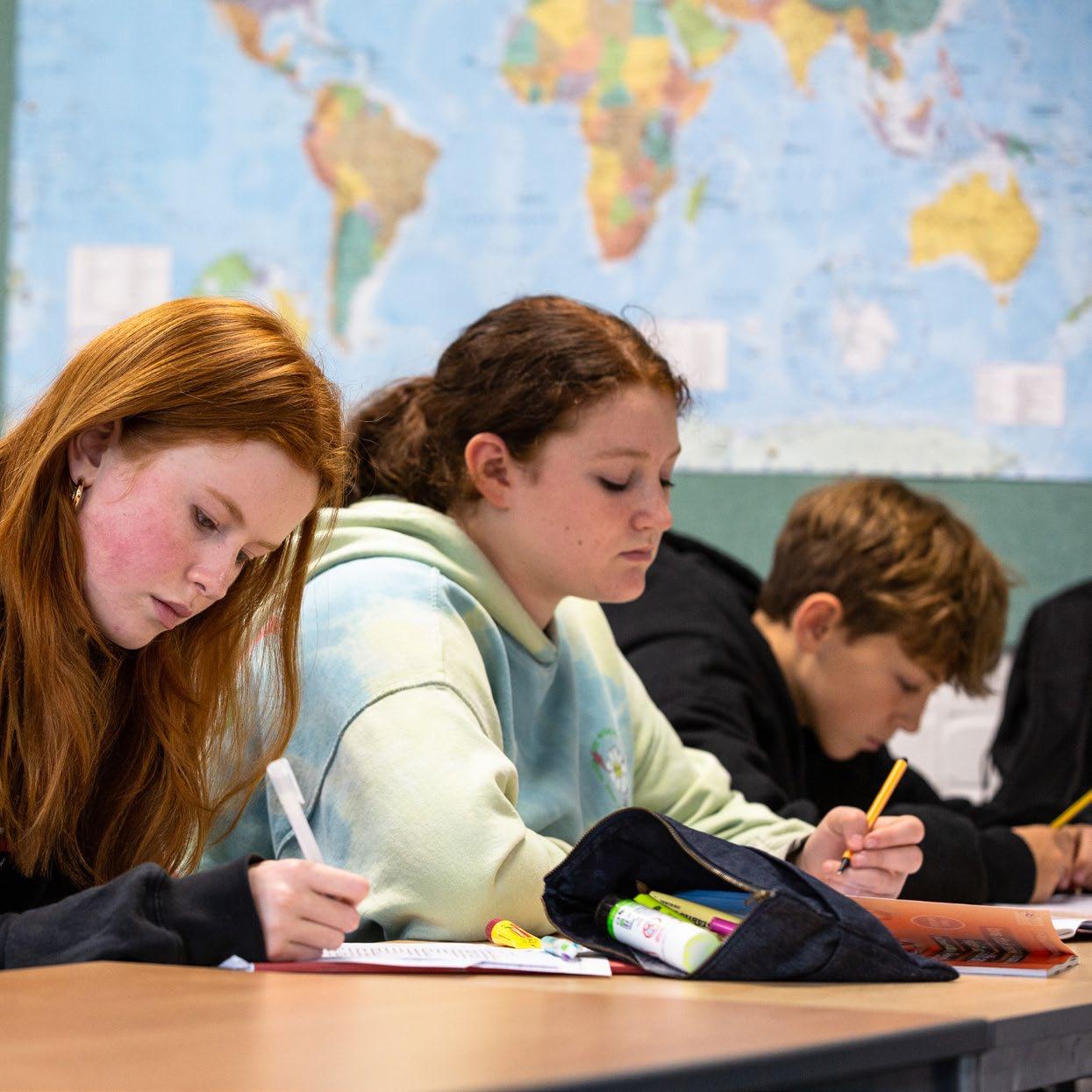
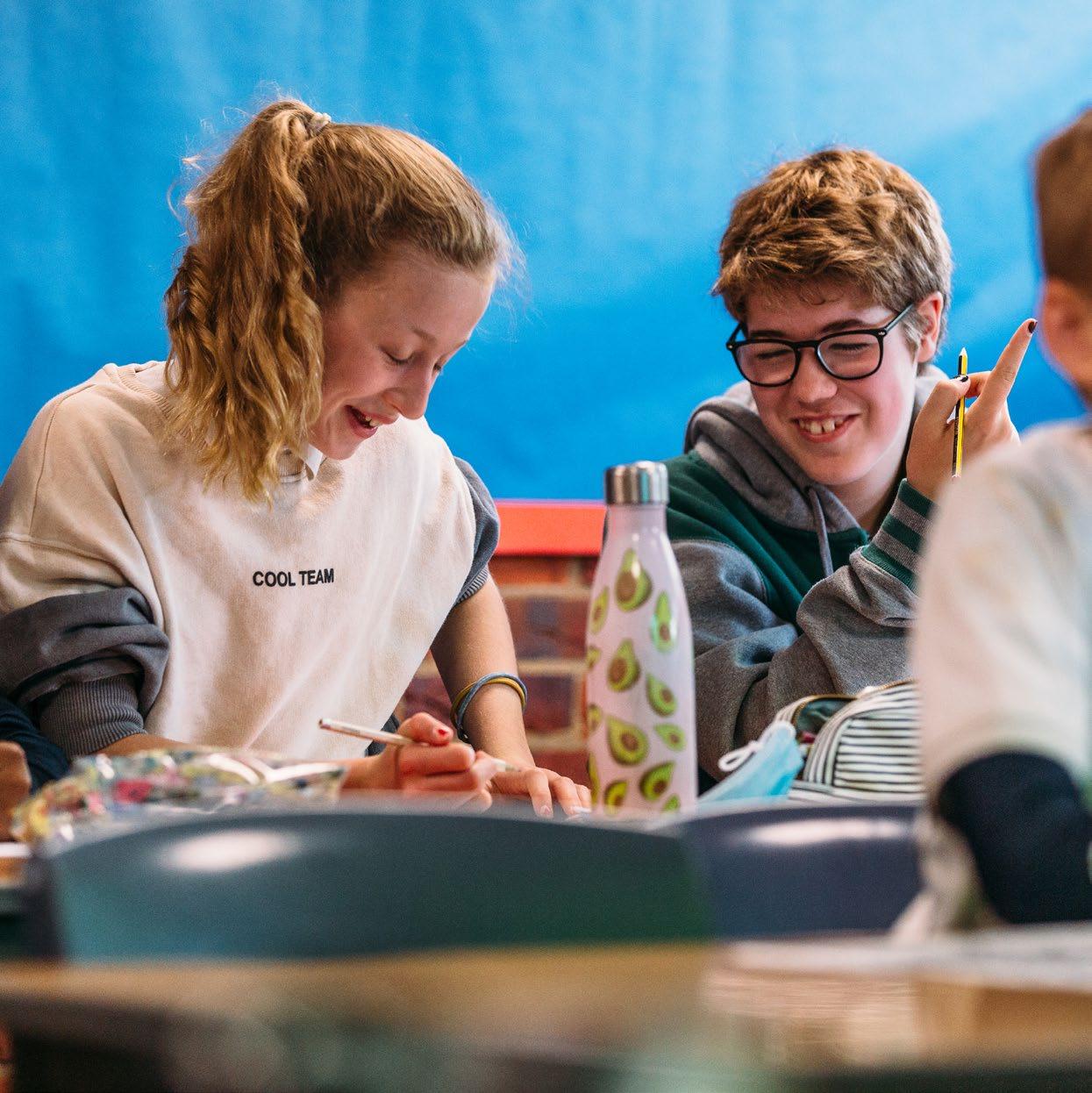
History
Examining Group AQA
Syllabus Title GCSE History (8145)
This is an exciting and highly challenging GCSE History course. There are four components all of which are assessed through written examination.
PAPER 1: UNDERSTANDING THE MODERN WORLD
(50% of qualification)
Written exam: 2 hours (84 marks including 4 for spelling, punctuation and grammar)
SECTION A, PERIOD STUDY: GERMANY, 1890-1945: DEMOCRACY AND DICTATORSHIP
This unit will examine the development of Germany during the rise and fall of democracy and the subsequent rise and fall of Nazism. Students will learn about the political, economic, social and cultural aspects of these changing times and the key individuals who shaped change. The unit specifically focuses on Kaiser Wilhelm and the impact of the First World War on Germany; Weimar democracy and political unrest; the Stresemann era; economic developments prior to World War Two; the impact of the Depression and support for Nazis; the establishment of Hitler’s dictatorship and the experience of Germans under the Nazis including opposition and resistance.
SECTION B, WIDER WORLD DEPTH STUDY: CONFLICT AND TENSION: THE INTER-WAR YEARS, 1918-1939
This unit will focus on the needs and interests of different individuals and states looking at national self-determination, internationalism and the peace settlement. Students will study the armistice; the Versailles Settlement and the impact of the treaty; the League of Nations, diplomacy outside of the League and the failure of the League to prevent war in 1939; the development of tension leading up to the Second World War; the Policy of Appeasement and the outbreak of World War Two in 1939 considering the responsibility of key individuals such as Hitler, Stalin and Chamberlain.
PAPER 2: SHAPING THE NATION
(50% of qualification)
Written exam: 2 hours (84 marks including 4 marks for spelling, punctuation and grammar)
SECTION A, THEMATIC STUDY: BRITAIN MIGRATION, EMPIRES AND THE PEOPLE: C 790 TO THE PRESENT DAY
This unit gives students an understanding of how the people of Britain have been shaped by interactions with the wider world. Students will examine the importance of seven factors (war, religion, government, economic resources, science and technology, ideas such as imperialism, social Darwinism and civilisation, and the role of individuals) and how they influenced Britain’s dealings with the wider world. Students will focus on invasions with the Vikings and Normans and the way in which the Anglo-Saxons ruled England; the development of the slave trade and colonisation in North America and the Caribbean; the expansion of the Empire in India and Africa and migration to, from and within Britain; the end and legacy of the Empire and Britain’s relationship with Europe including Windrush, the World Wars, and the Falklands War.
SECTION B, BRITISH DEPTH STUDY INCLUDING THE HISTORIC ENVIRONMENT: ELIZABETHAN ENGLAND, C1568-1603
This unit is an in depth study of the last 35 years of the reign of Elizabeth I. There is a focus on economic, religious, political and social events, and historical controversies of the time period. Students will assess the court of Elizabeth; the difficulties of being a female ruler, the problem of marriage and succession, rebellions against her; living conditions and fashions; theatre; the poor; explorers; Mary Queen of Scots; conflict with Spain.
Part of this unit will involve a study of the historic environment of Elizabethan England. Students will study a specific site in depth and examine its historical context. The site studied is changed each year and students will be expected to answer a question on the specified site. Although there is no requirement to go to the site, we endeavour to visit the site in V Group if it is close enough to the school.
Music
Examining Group OCR
Syllabus Title GCSE Music (J356)
GCSE Music is based on five Areas of Study providing performance, composition and appraisal opportunities.
Pupils will study music from the past and present, from the western tradition and other world cultures. There will also be opportunities for pupils to further their understanding of musical styles of their own choosing.
AREA OF STUDY 1: MY MUSIC (spotlight on my instrument)
Pupils learn about their instrument (or voice), its capabilities, limitations, and repertoire. They will practice, rehearse, perform, and compose a piece in any style they wish.
AREA OF STUDY 2: THE CONCERTO THROUGH TIME
Pupils study the Concerto and its development from 1650 to 1910.
AREA OF STUDY 3: RHYTHMS OF THE WORLD
Pupils study the traditional rhythmic roots from four geographical regions of the world: India and the Punjab; Eastern Mediterranean and Middle East; Africa; Central and South America.
AREA OF STUDY 4: FILM MUSIC
Pupils study a range of music used for films including: music composed for a film; music from the Western Classical tradition used within a film; music that has been composed as a soundtrack for a video game.
AREA OF STUDY 5: CONVENTIONS OF POP
This involves the study of a range of popular music from the 1950s to the present day, focussing on: Rock ‘n’ Roll of the 1950s and 1960s; Rock Anthems of the 1970s and 1980s; Pop Ballads of the 1970s, 1980s and 1990s; Solo Artists from 1990 to the present day.
HOW IS IT ASSESSED?
Integrated Portfolio: One performance and one composition, to a self-determined brief, for their own instrument. (30% of qualification)
Practical Component: Pupils record one performance in an ensemble and produce one composition in response to a brief set by OCR. (30% of qualification)
Listening and Appraising: The Listening Exam assesses aural perception and understanding of the content of the Areas of Study 2-5. Pupils listen to extracts of music and answer questions about them. The exam lasts 1 hour 30 minutes. (40% of qualification).

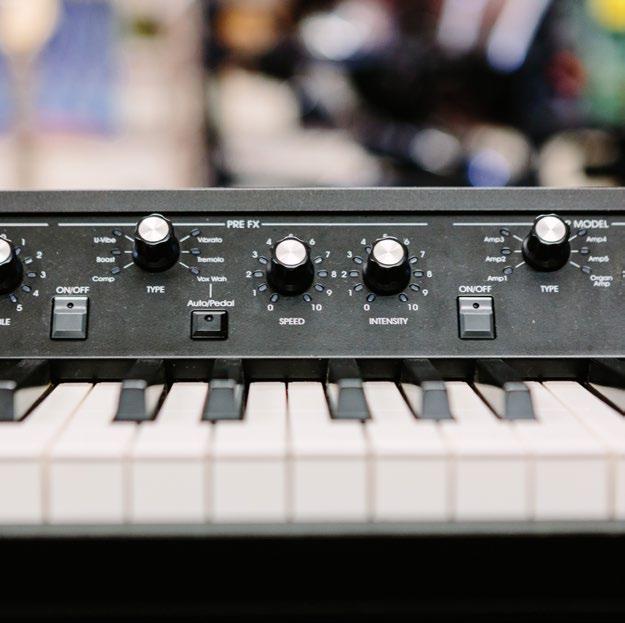
It’s a school that meets the student ‘where they are at’ and allows them to be themselves, whilst supporting them to perform well as well as being happy at school
Parents’ Survey
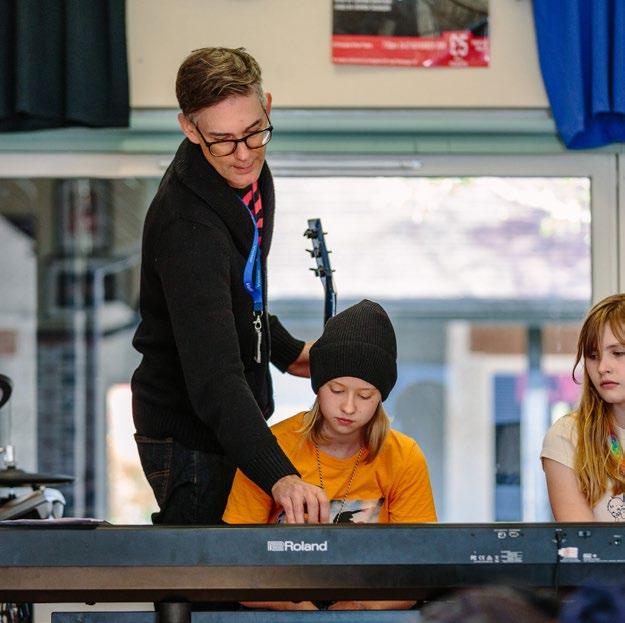
Philosophy, Religion and Ethics (PRE)
Examining Group EDUQAS
Syllabus Title Religious Studies, Route A
WHAT IS PRE?
This GCSE covers philosophy, religion and ethics in the modern world. Students explore religious and non-religious beliefs about questions of truth, values, meaning and purpose. They are challenged to reflect on their own thoughts and attitudes whilst comparing and contrasting these with the beliefs and practices of others. PRE enables young people to develop understanding and empathy; skills for life and work in both a pluralist society and global community.
Throughout its history, St Chris students have been encouraged to learn about world religions, not through religious instruction, but by delving into the curious questions of life that humans explore and how various cultural, religious and secular traditions respond these.
HOW IS IT ASSESSED?
There are three exams, one for the following three components:
COMPONENT 1
Religious, Philosophical and Ethical Studies in the Modern World
2 hour written exam which is 50% of the qualification. Students will study the following four themes:
• Relationships
• Life and Death
• Good and Evil
• Human Rights
COMPONENT 2
Study of Christianity
1 hour written exam which is 25% of the qualification
Students study the beliefs, teachings and practices of Christianity.
COMPONENT 3
Study of a World Faith
1 hour written exam which is 25% of the qualification
Students study the beliefs, teachings and practices of one the following world faiths:
WHY CHOOSE PRE?
If you enjoy discussing big questions about what is right and wrong, how humans behave and what is important in life, then you will love GCSE Religious Studies. It is an excellent choice for developing skills of evaluation and analysis. Lessons include lots of discussion and debate alongside literacy skills of essay writing.
Students who love PRE often go on to take A Level Philosophy or Religious Studies and it complements learning across the curriculum; everything from science to literature. It is particularly helpful if you are interested in careers in law, ethics, education, politics and government.
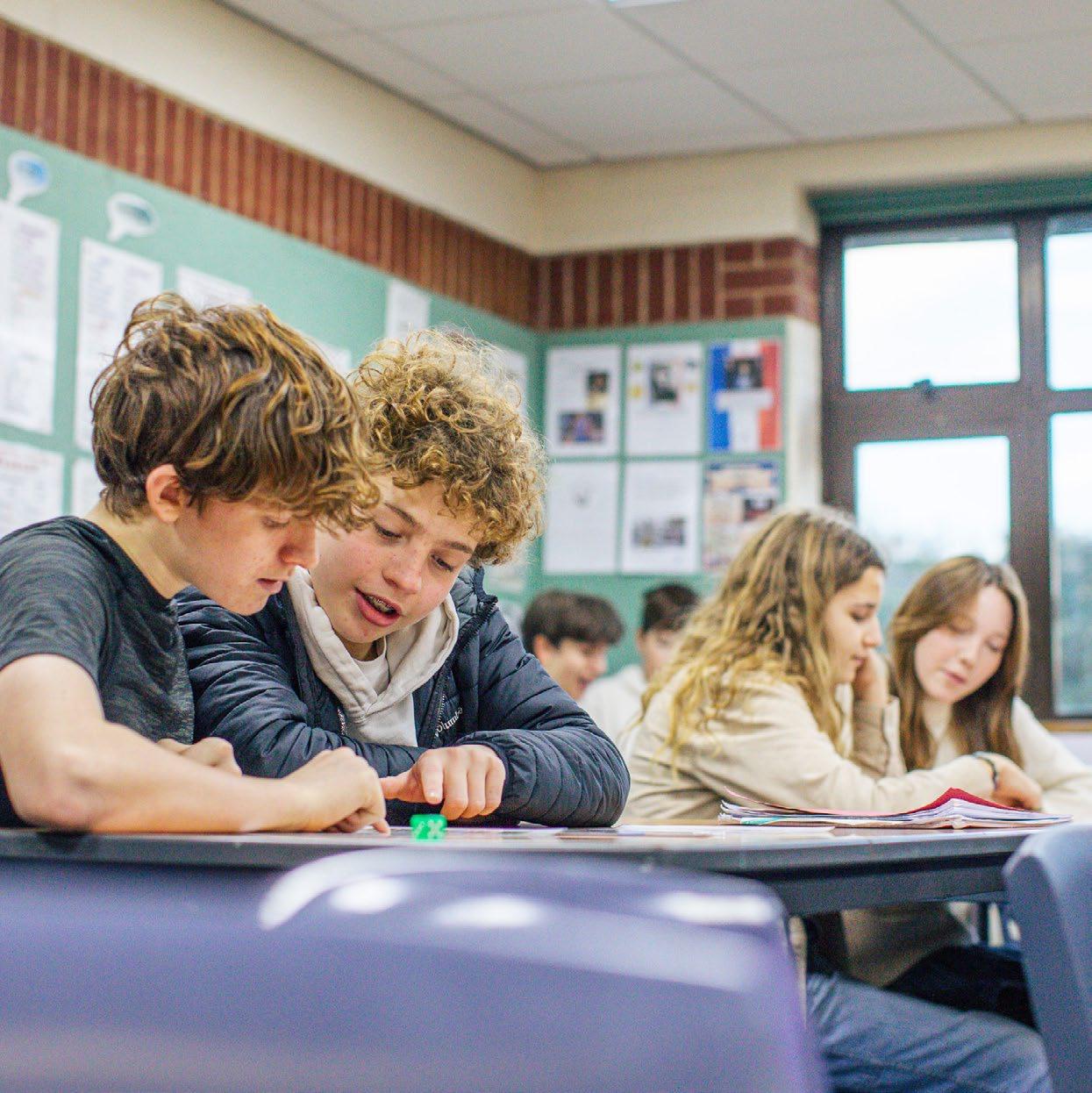
Physical Education
Examining Group EDUQAS
Syllabus Title GCSE Physical Education (601/8444/9)
THE GCSE IN PHYSICAL EDUCATION REQUIRES STUDENTS TO:
• Develop theoretical knowledge and understanding of the factors that underpin physical activity and sport and use this knowledge to improve performance;
• Understand how the physiological and psychological state affects performance in physical activity and sport;
• Perform effectively in different physical activities by developing skills and techniques and selecting and using tactics, strategies and/or compositional ideas;
• Develop their ability to analyse and evaluate to improve performance in physical activity and sport;
• Understand the contribution which physical activity and sport make to health, fitness and well-being;
• Understand key socio-cultural influences which can affect people’s involvement in physical activity and sport;
THE SUBJECT CONTENT FOCUSES ON FIVE KEY AREAS:
1 Health, training and exercise
2 Exercise physiology
3 Movement analysis
4 Psychology of sport and physical activity
5 Socio-cultural issues in physical activity and sport
HOW IS IT ASSESSED?
Component 1: Introduction to physical education
Written examination: 2 hours, 120 marks (60% of qualification)
A range of short and extended answers, which can be drawn from any part of the specification; some questions will have stimuli/sources
Component 2: The active participant in physical education Non-exam assessment: 80 marks (40% of qualification). It is internally marked and externally moderated.
Students are assessed in three different activities in the role of player/performer in at least one individual activity and in one team sport (20 marks/10% for each performance). Learners are also assessed through a written analysis of one of their chosen activities (20 marks; 10%).
WRITTEN PERFORMANCE ANALYSIS AND EVALUATION
20 marks (10%) are equally divided between the analysis and evaluation elements.
Students must design, monitor and evaluate a personal training programme to provide recommendations that will improve their performance in one of their assessed practical activities. Students must collect, present, analyse and evaluate appropriate data for the personal performance analysis; they must use specification theory to support their choices throughout the design, implantation and evaluation stages.
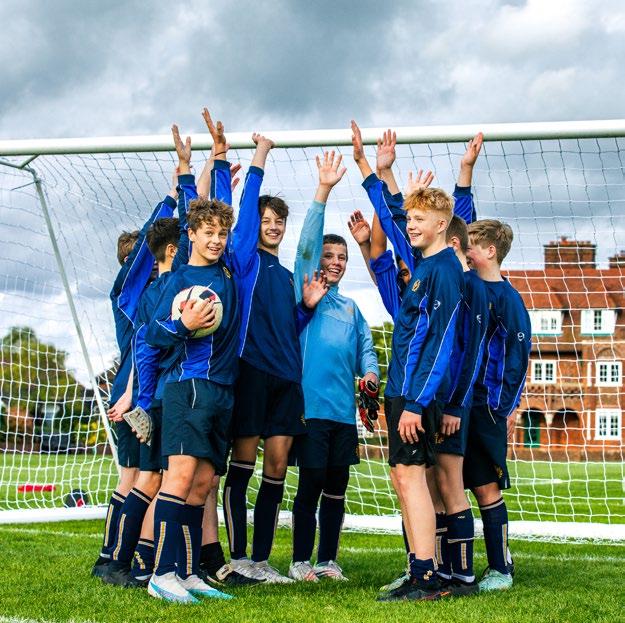
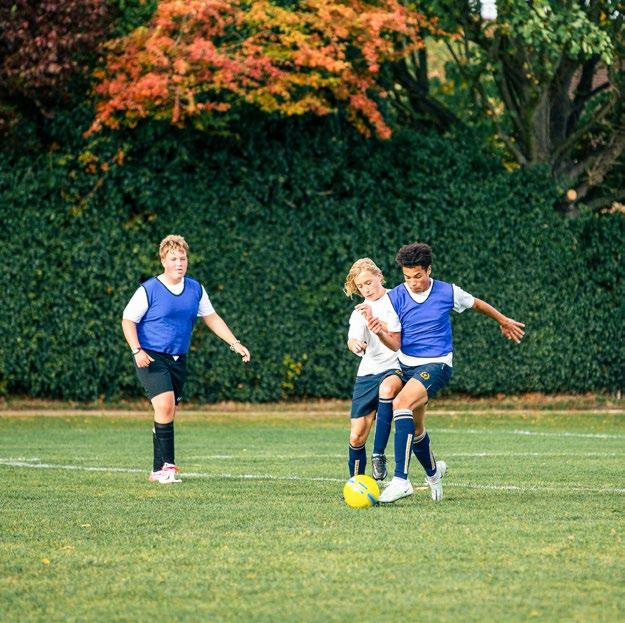
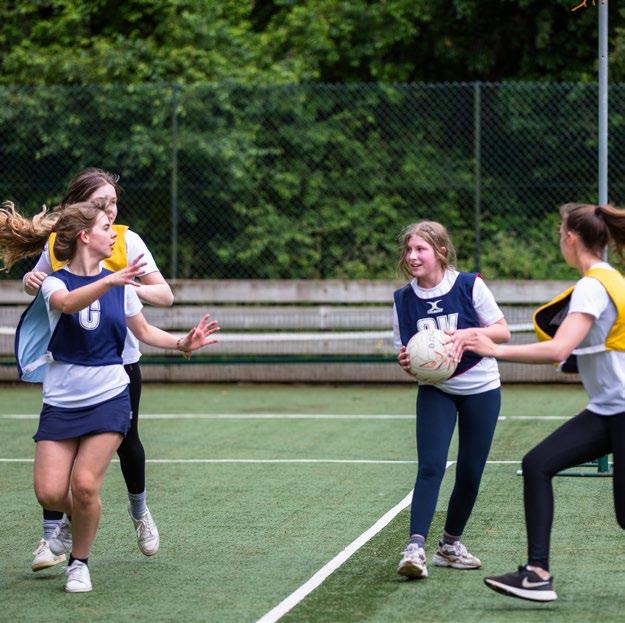
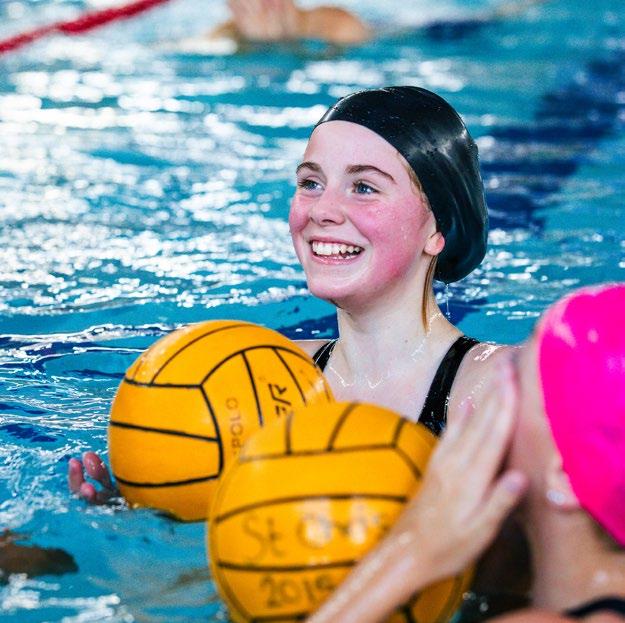
Spanish
Examining Group AQA
Syllabus Title GCSE Spanish (8698)
LISTENING PAPER
(25% of qualification)
• Section A: Questions in English, to be answered in English or non-verbally
• Section B: Questions in Spanish, to be answered in Spanish or non-verbally
READING PAPER
(25% of qualification)
Understanding and responding to different types of written language.
• Section A – questions in English, to be answered in English or non-verbally
• Section B – questions in Spanish, to be answered in Spanish or non-verbally
• Section C – translation from Spanish into English
WRITING PAPER
(25% of qualification)
Structured writing task (90 words); Open-ended writing task (student responds to two compulsory detailed bullet points, 150 words in total); Translation from English into Spanish (50 words).
SPEAKING TEST
(25% of qualification)
Externally set, internally conducted, externally assessed.
Communicating and interacting effectively in speech: Role-play – 15 marks (2 minutes); Photo card – 15 marks (3 minutes); General conversation – 30 marks (5–7 minutes.)
The emphasis at GCSE is on communication. Our objective is to enable students of all abilities to develop their Spanish language skills to their full potential, equipping them with the knowledge to communicate in a variety of contexts with confidence.
The course covers three distinct themes that apply to all four question papers:
Theme 1: Identity and culture
Theme 2: Local, national, international and global areas of interest
Theme 3: Current and future study and employment
Students are expected to understand and provide information and opinions about these themes relating to their own experiences and those of other people, including people in countries/communities where Spanish is spoken.

Animal Care (BTEC Level 2)
Examining Group Pearson
Syllabus Title BTEC Level 2 Tech Award in Animal Care (603/7057/9)
WHO IS THE QUALIFICATION FOR?
The Pearson BTEC Level 2 Tech Award in Animal Care is for learners who want to acquire applied knowledge and practical skills through vocational contexts by studying animal health and welfare, including signs of good and ill health, causes, transmission and treatment of common diseases in animals. Learners will study the different health and monitoring checks, factors that affect animal behaviour, and how this influences handling and restraint; learners will also assess what needs to be carried out to prepare, check and clean out animal accommodation as part of their Key Stage 4 learning.
The qualification enables learners to develop their practical skills, such as using appropriate equipment and techniques to handle and restrain different animals, and to prepare and clean out animal accommodation ready for use using realistic vocational contexts. It will also develop personal skills, such as selfmanagement and communication, through a practical and skillsbased approach to learning and assessment. The qualification recognises the value of learning skills, knowledge and vocational attributes to complement GCSEs. The qualification will broaden learners’ experience and understanding of the varied progression options available to them.
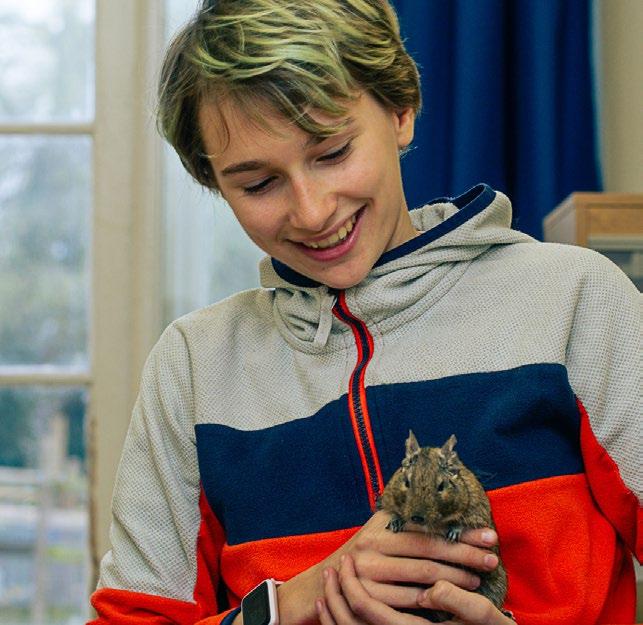
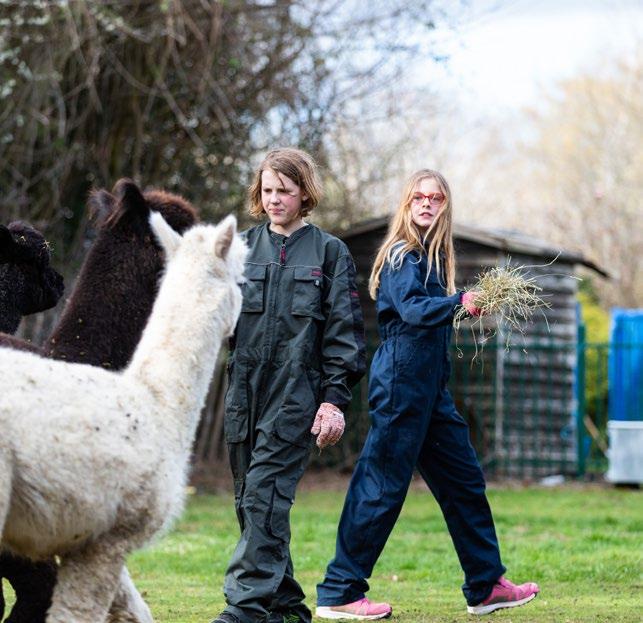

WHAT DOES THE QUALIFICATION COVER?
Learners will have the opportunity to develop knowledge and practical skills in the following areas:
animal health and welfare, including signs of good and ill health, causes, transmission and treatment of common diseases in animals, the different health and monitoring checks, and the use of animals in society factors affecting animal behaviour, the impact on handling and restraint, when it is safe and unsafe to handle and restrain animals, the practical application of safe handling and restraint techniques and equipment features that need to be considered when selecting accommodation for animals to ensure it is appropriate and meets their needs, and the practical activities of preparing, checking and cleaning out animal accommodation using the appropriate equipment. This Tech Award complements the learning in GCSE programmes such as GCSE Biology, GCSE Business and GCSE Mathematics.
COMPONENTS
Learners are required to complete and achieve all three components in the qualification.
COMPONENT 1: Animal Handling
COMPONENT 2: Animal Housing and Accommodation
COMPONENT 3: Animal Health and Welfare
ASSESSMENT
Components 1 and 2 are assessed through non-exam internal assessment. The non-exam internal assessment for these components has been designed to demonstrate application of knowledge underpinning the sector through realistic tasks and activities. Component 3 is an external component that builds on knowledge, understanding and skills acquired and developed in Components 1 and 2, and includes synoptic assessment. Learners will apply their knowledge and understanding of animal handling and restraint, and the selection of appropriate animal accommodation, to examination questions with a specified context. An exam worth 60 marks will be completed under supervised conditions. The supervised assessment period is 2 hours.
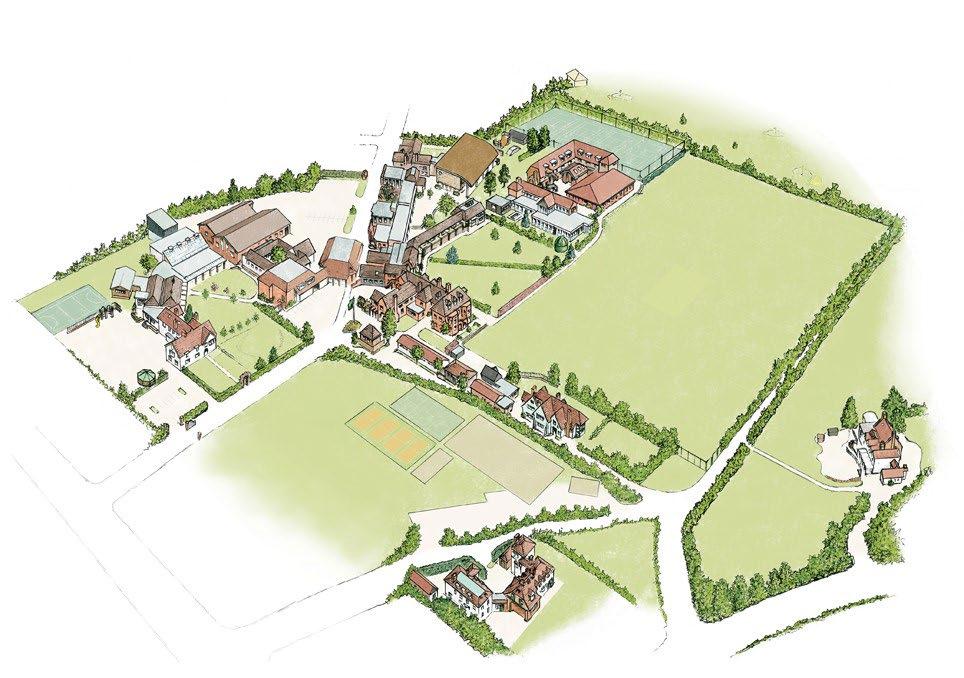
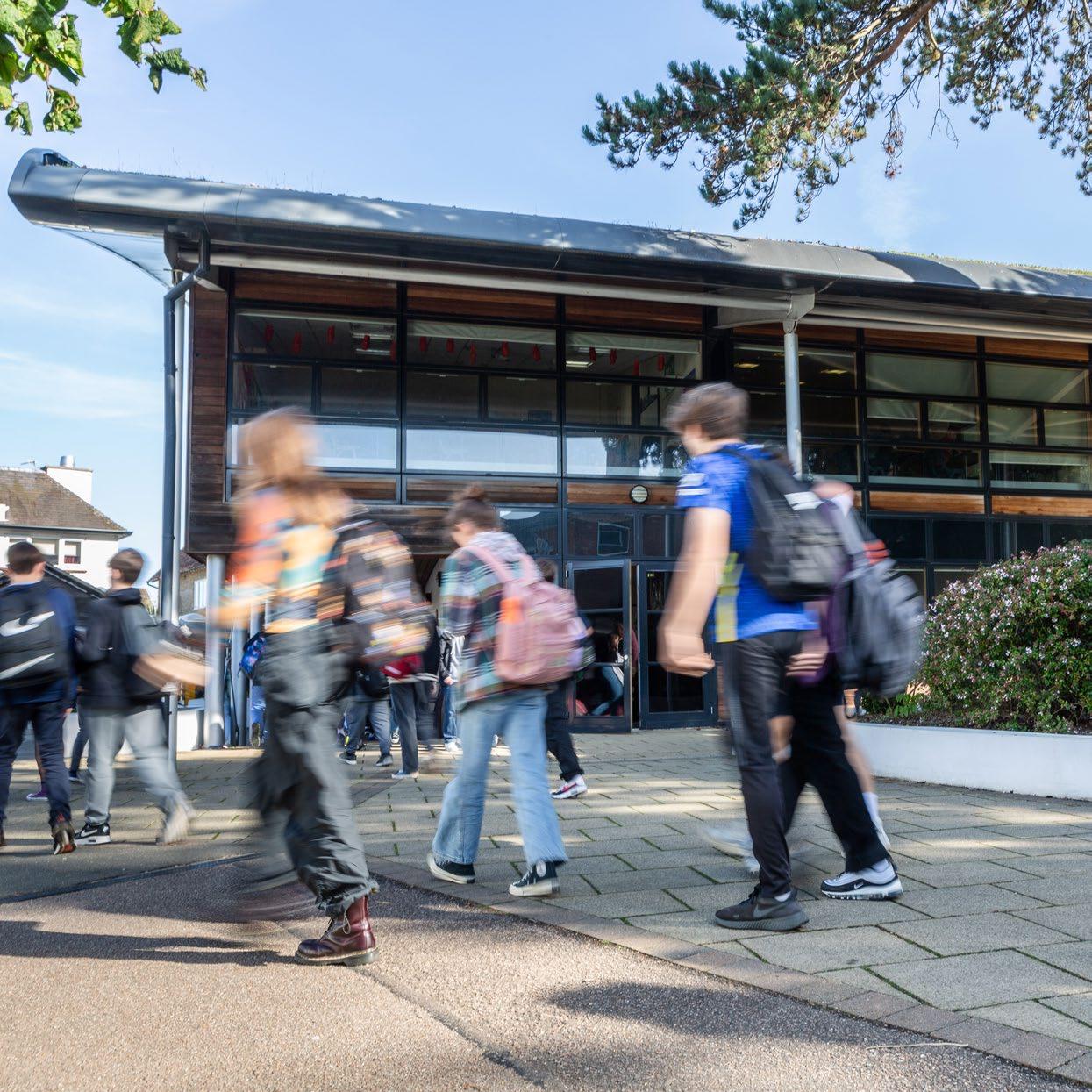
Key Contacts
HEAD
Rich Jones
DEPUTY HEAD
Nat Baker
ASSISTANT HEAD (PASTORAL & BOARDING)
DESIGNATED SAFEGUARDING LEAD
Alistair Phillips
ASSISTANT HEAD (PUPIL DEVELOPMENT & WELLBEING)
Lizzie Hedderson
ASSISTANT HEAD (CO-CURRICULAR)
Emma Roskilly
ASSISTANT HEAD (SIXTH FORM)
Jenny Savage
HEAD OF SEND
Kirsten Rockey
OPERATIONS DIRECTOR
Simon Holmes
SENIOR ADMISSIONS REGISTRAR
Sarah Davis
+44 (0) 1462 650 947 admissions@stchris.co.uk
Main School Switchboard
+44 (0) 1462 650850 hello@stchris.co.uk stchris co uk
